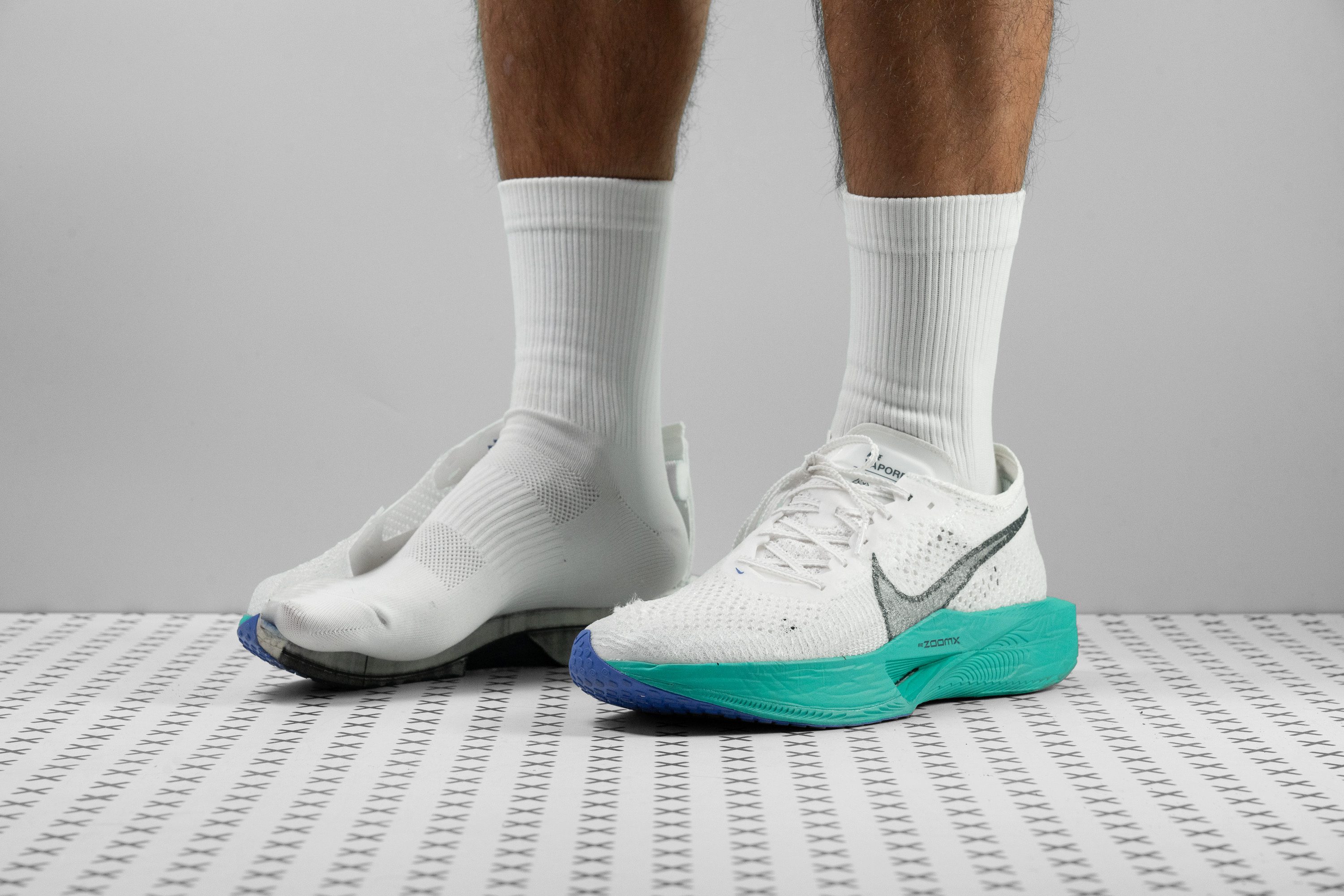Our verdict
- Top pick in best Nike Flyknit running shoes
Pros
- Exceptionally breathable upper
- Outstanding ZoomX cushioning
- Superb choice from the mile to the marathon
- Impressively low weight
- Enhanced stability
- Plush, cloud-like foam
- Upgraded outsole for better grip
Cons
- Uncomfortably large tongue
- The heel is still too narrow
Audience verdict
- Top 6% most popular running shoes
Comparison
The most similar running shoes compared
+ + Add a shoe | |||||
|---|---|---|---|---|---|
| Audience score | 86 Good! | 87 Great! | 88 Great! | 90 Superb! | |
| Price | £240 | £240 | £250 | £195 | |
| Pace | Competition | Competition | CompetitionTempo | CompetitionTempo | |
| Arch support | Neutral | Neutral | Neutral | Neutral | |
| Weight lab Weight brand | 6.7 oz / 190g 6.5 oz / 184g | 5.9 oz / 166g 6.5 oz / 184g | 7.8 oz / 220g 7.8 oz / 221g | 7.2 oz / 204g 7.4 oz / 209g | |
| Lightweight | ✓ | ✓ | ✓ | ✓ | |
| Drop lab Drop brand | 11.1 mm 8.0 mm | 8.6 mm 6.0 mm | 11.8 mm 8.0 mm | 10.6 mm 8.0 mm | |
| Strike pattern | HeelMid/forefoot | HeelMid/forefoot | Heel | HeelMid/forefoot | |
| Size | True to size | True to size | True to size | True to size | |
| Midsole softness | Soft | Soft | Balanced | Soft | |
| Difference in midsole softness in cold | Normal | Small | Small | Normal | |
| Toebox durability | Bad | Good | Decent | Bad | |
| Heel padding durability | Good | Decent | Good | Good | |
| Outsole durability | Good | Bad | Good | Decent | |
| Breathability | Breathable | Moderate | Breathable | Moderate | |
| Toebox width at the widest part | Medium | Narrow | Narrow | Medium | |
| Toebox width at the big toe | Medium | Medium | Medium | Narrow | |
| Stiffness | Stiff | - | Stiff | Stiff | |
| Difference in stiffness in cold | Small | - | Small | Small | |
| Torsional rigidity | Stiff | Stiff | Stiff | Stiff | |
| Heel counter stiffness | Moderate | Flexible | Flexible | Flexible | |
| Plate | Carbon plate | Carbon plate | Carbon plate | Carbon plate | |
| Rocker | ✓ | ✗ | ✓ | ✓ | |
| Heel lab Heel brand | 37.1 mm 40.0 mm | 34.1 mm 35.0 mm | 39.1 mm 40.0 mm | 39.2 mm 40.0 mm | |
| Forefoot lab Forefoot brand | 26.0 mm 32.0 mm | 25.5 mm 29.0 mm | 27.3 mm 32.0 mm | 28.6 mm 32.0 mm | |
| Widths available | Normal | Normal | Normal | Normal | |
| Orthotic friendly | ✗ | ✓ | ✓ | ✓ | |
| Season | SummerAll seasons | All seasons | SummerAll seasons | All seasons | |
| Removable insole | ✗ | ✓ | ✓ | ✓ | |
| Ranking | #332 Bottom 39% | #92 Top 29% | #133 Top 42% | #35 Top 11% | |
| Popularity | #29 Top 6% | #24 Top 8% | #97 Top 31% | #42 Top 14% |
Who should buy
We are convinced that the Nike Vaporfly 3 is the ideal racing shoe for:
- Marathoners with narrow or medium-width feet who seek a fast and comfortable racing shoe.
- Fans of the Vaporfly series looking for an upgrade to an even lighter shoe than the v1 and v2, complete with an improved upper.
- Heel strikers without stability issues, desiring a high-drop, cushioned racing shoe.
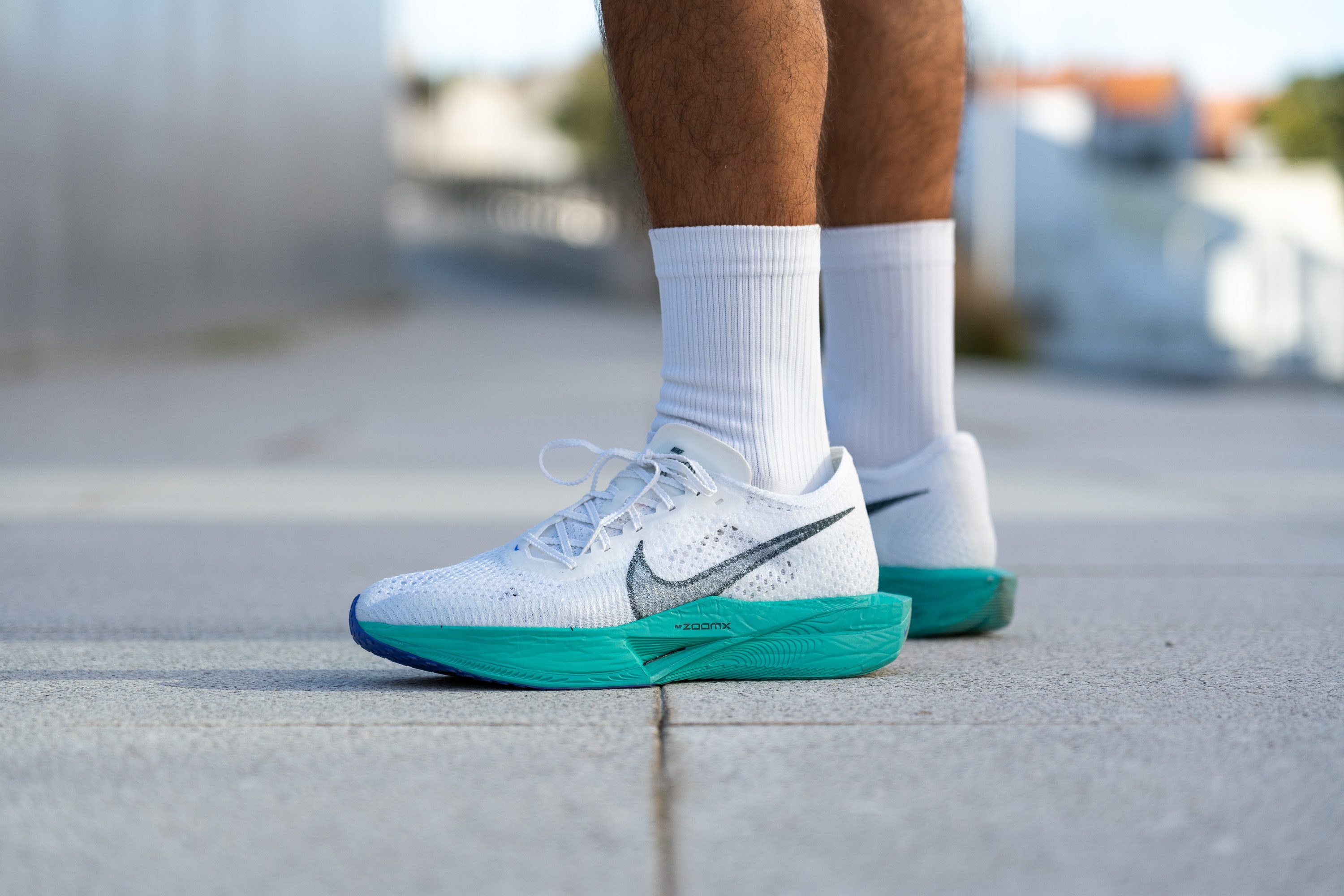
Who should NOT buy
Although the update looks great on paper, it's not without drawbacks. The most significant is that the shoe isn't as great for short distances as before. Those aiming for 5K/10K personal bests might find better value in snappier alternatives like the ASICS Metaspeed Edge+ or the On Cloudboom Echo 3.
Additionally, it remains a poor choice for runners with wide feet. However, unlike in 2019 when it was the only supershoe, today there are other options to consider, such as the Adidas Adizero Adios Pro 3 or the Nike Alphafly 3. We've seen in the lab that these models accommodate wider feet better.
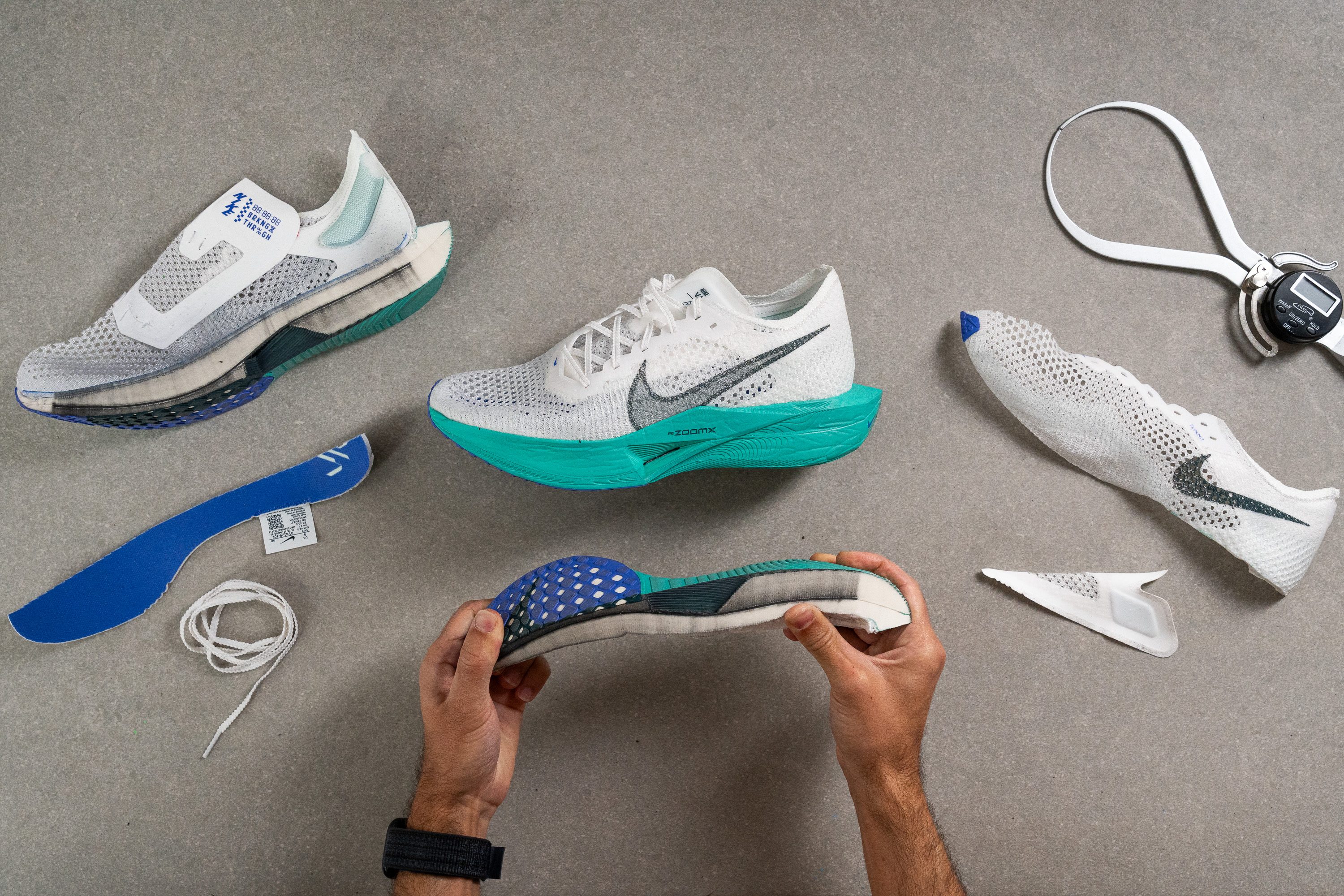
Cushioning
Heel stack
The current rule sets a 40-mm limit for stack height in the heel for elite race-day legal running shoes, a standard actually made around the first-generation Vaporfly back in 2020.
Thus, we expected a measurement slightly below this limit, as it's typical for shoes to aim for the maximum allowed. Surprisingly, the Vaporfly came in a bit shorter this time at 37.1 mm.
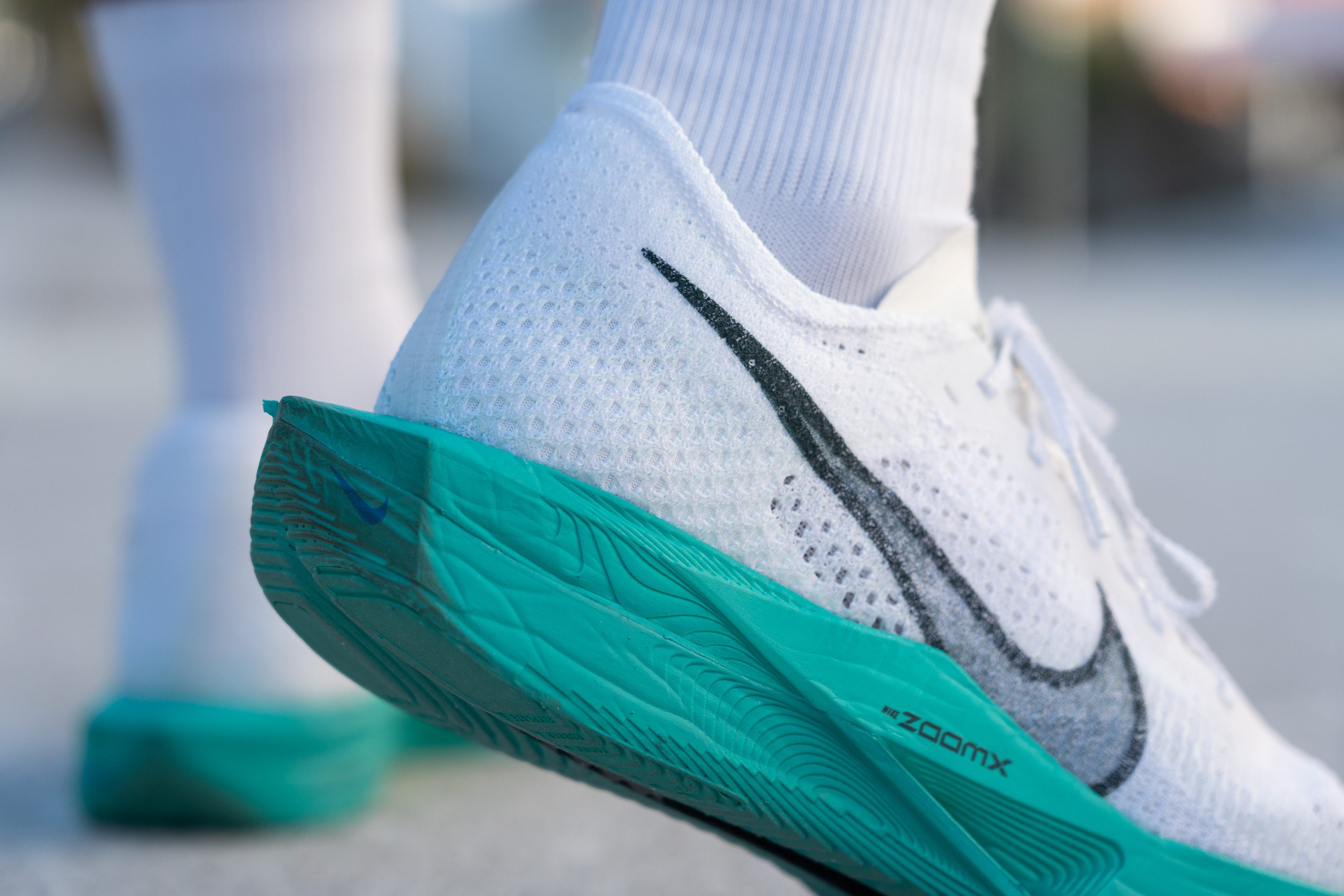
This huge height provides ample cushioning for any runner, regardless of footstrike, to comfortably tackle up any distance up to a marathon. There's no need to worry about those unused 3 mm.
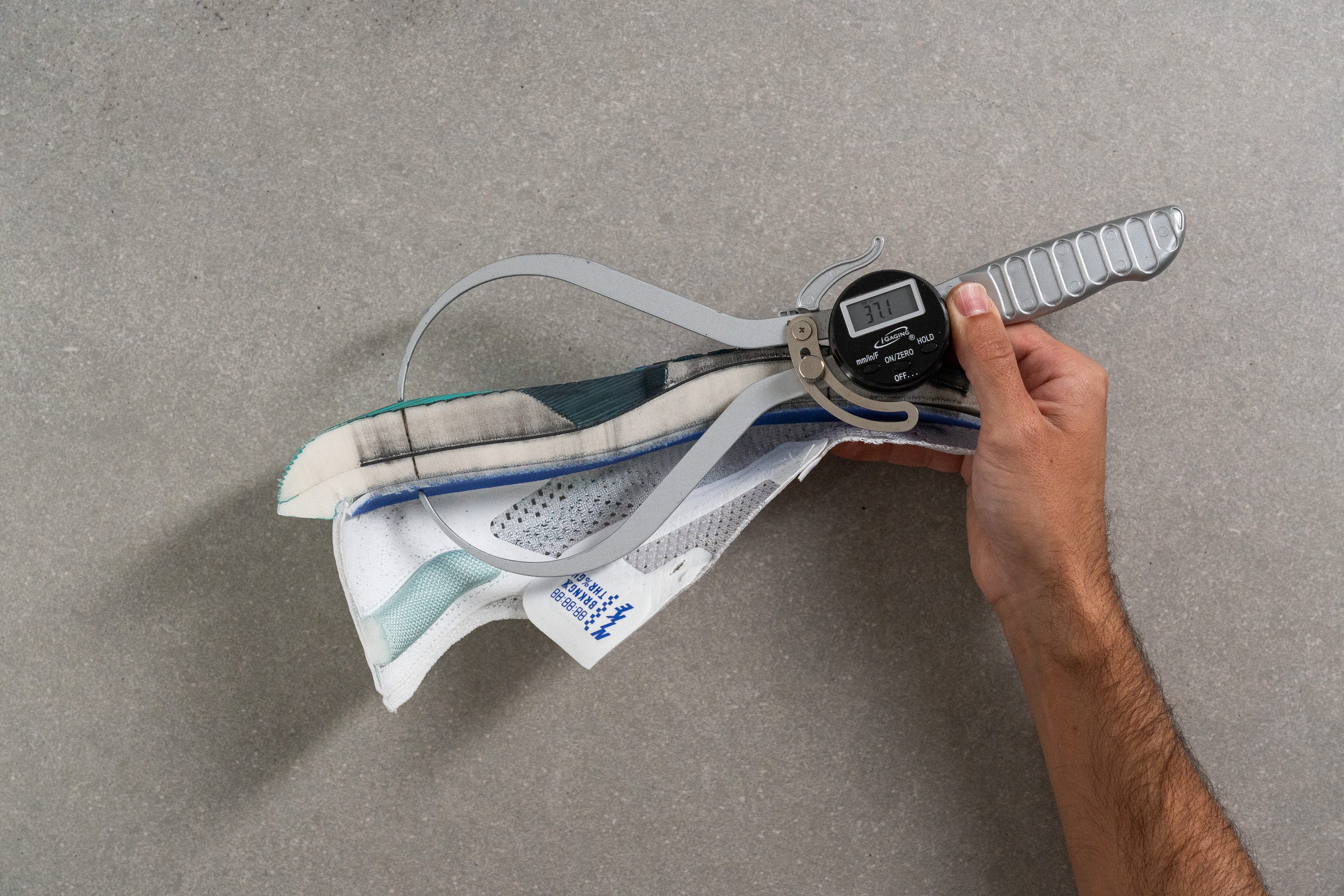
| Vaporfly 3 | 37.1 mm |
| Average | 34.2 mm |
Forefoot stack
The forefoot measures just 26.0 mm, a bit unexpected as it's nearly 5 mm less than the Vaporfly 2 at the official World Athletics measurement point.
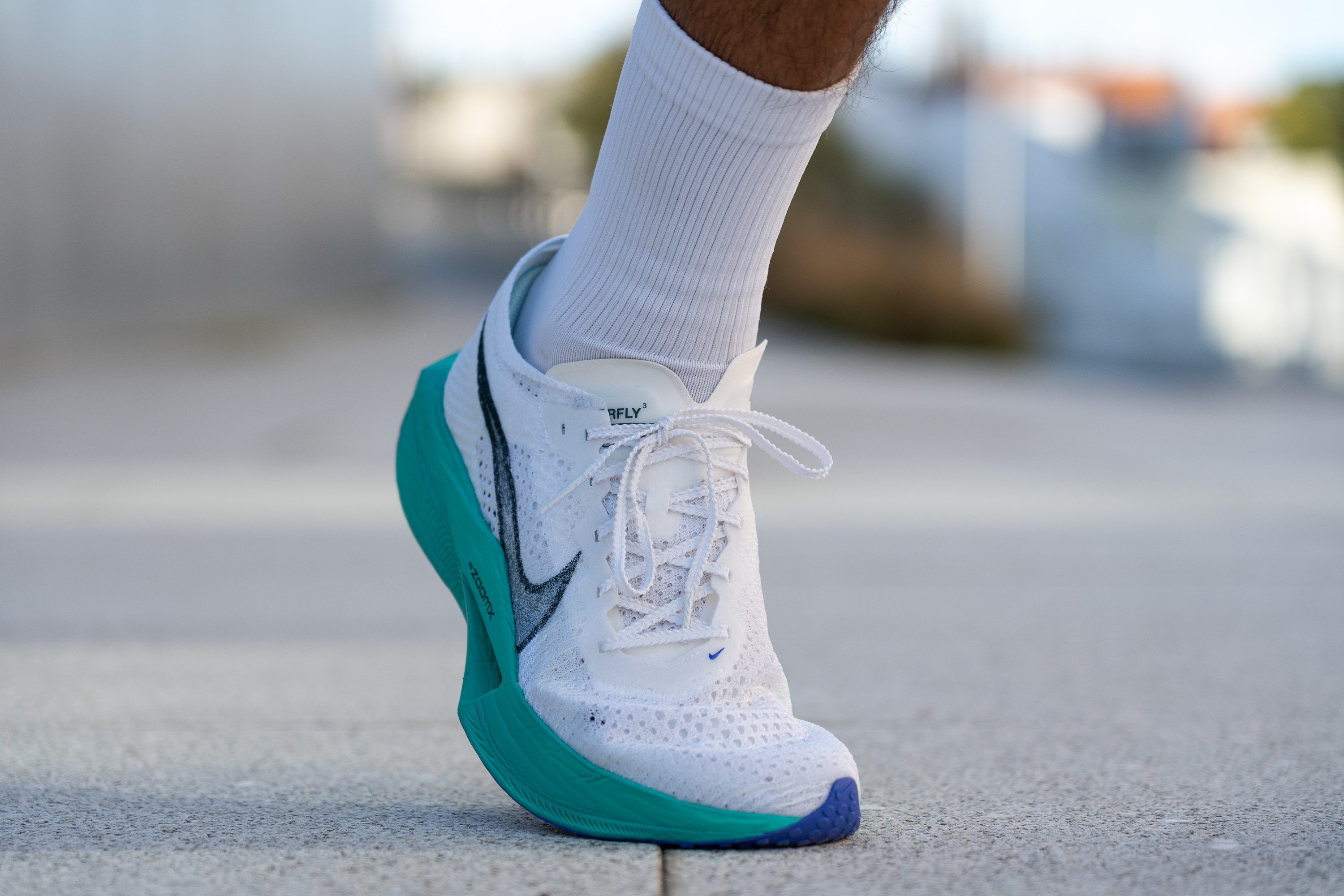
This might disappoint forefoot strikers, who could prefer other choices like the Saucony Endorphin Elite for marathons. However, it aligns with many of its competitors and should suffice for most runners, possibly except for the heavier forefoot strikers.
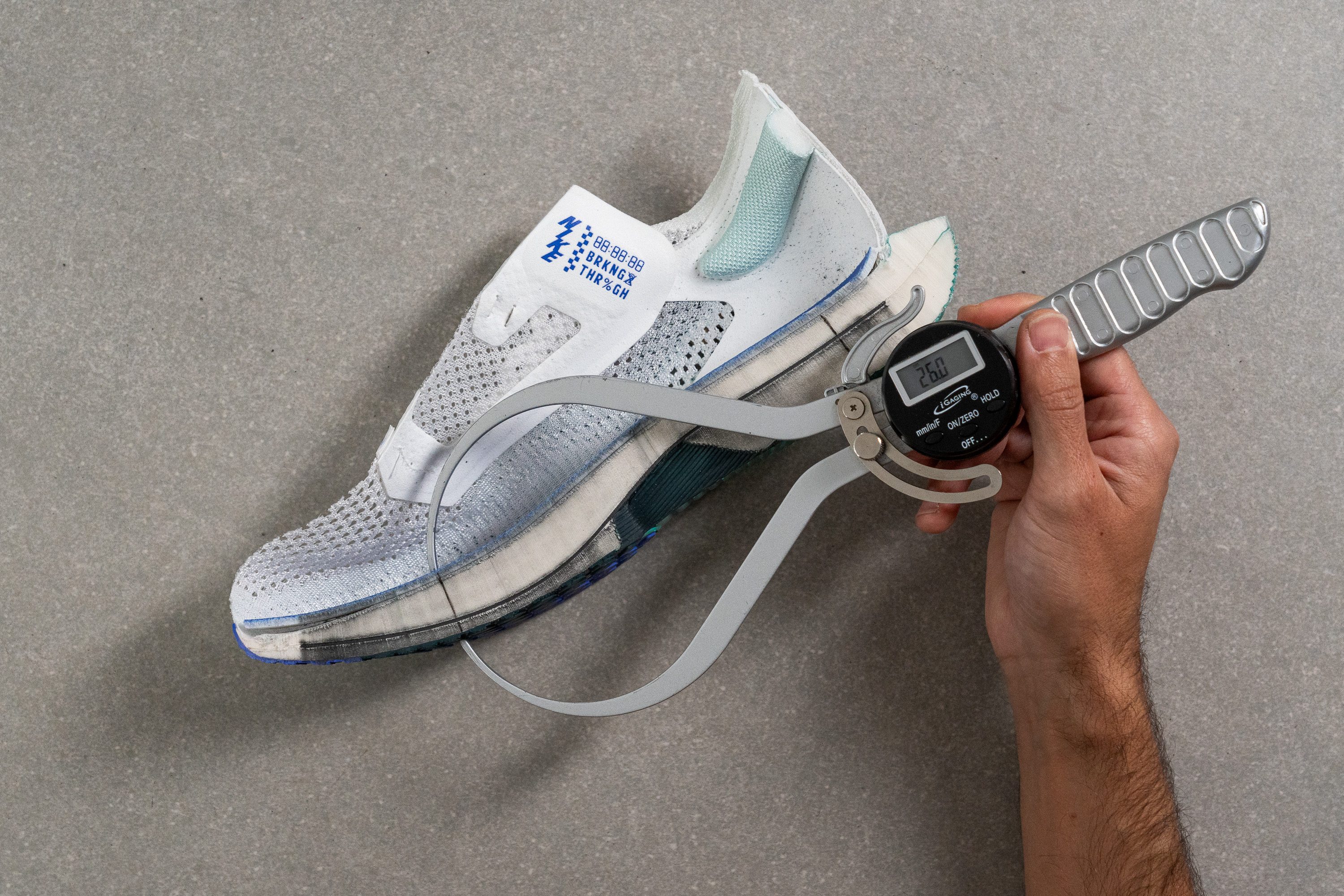
| Vaporfly 3 | 26.0 mm |
| Average | 25.7 mm |
Drop
We encountered a big surprise here: the drop isn't the 8-mm as claimed by Nike, but rather 11.1-mm according to our measurements. Just a friendly reminder—our numbers might differ from the brand's because we follow official guidelines, while brands are not strictly bound to them.
This larger drop, along with the excellent durability in the heel, positions this as the best Vaporfly yet for heel strikers.
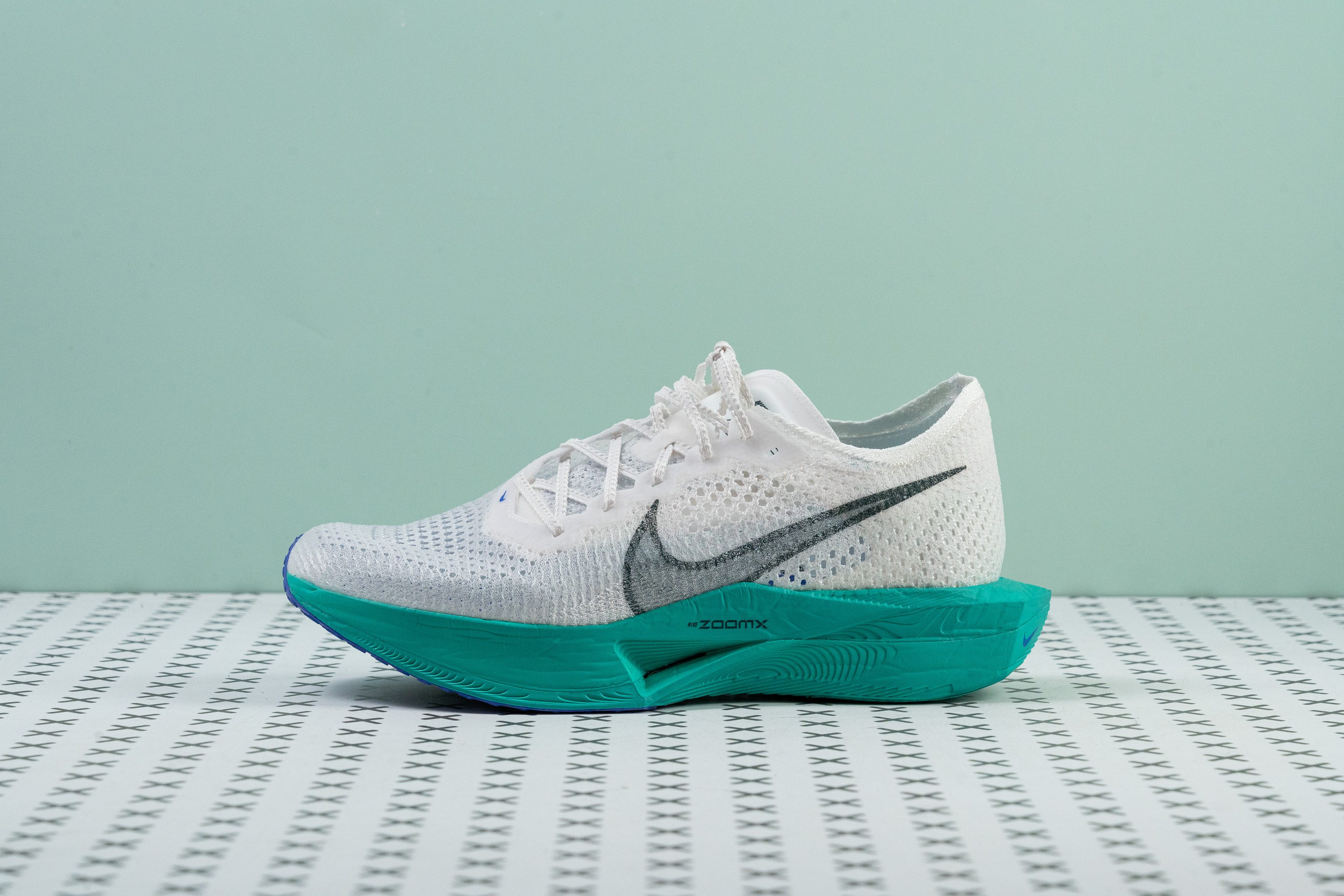
| Vaporfly 3 | 11.1 mm |
| Average | 8.6 mm |
Midsole softness
Yet, the real hero of the Vaporfly has always been its ZoomX midsole. Made from Pebax, the energy return this foam provides is absolutely phenomenal.
As you can see in this video, heel strikers might find the VF3 softer than midfoot or forefoot strikers due to the curvature and placement of the carbon plate.
Nike faced some criticism with the previous Vaporfly for being slightly firmer than anticipated. Addressing this, the V3 comes at only 16.8 HA, ensuring a plush ride.
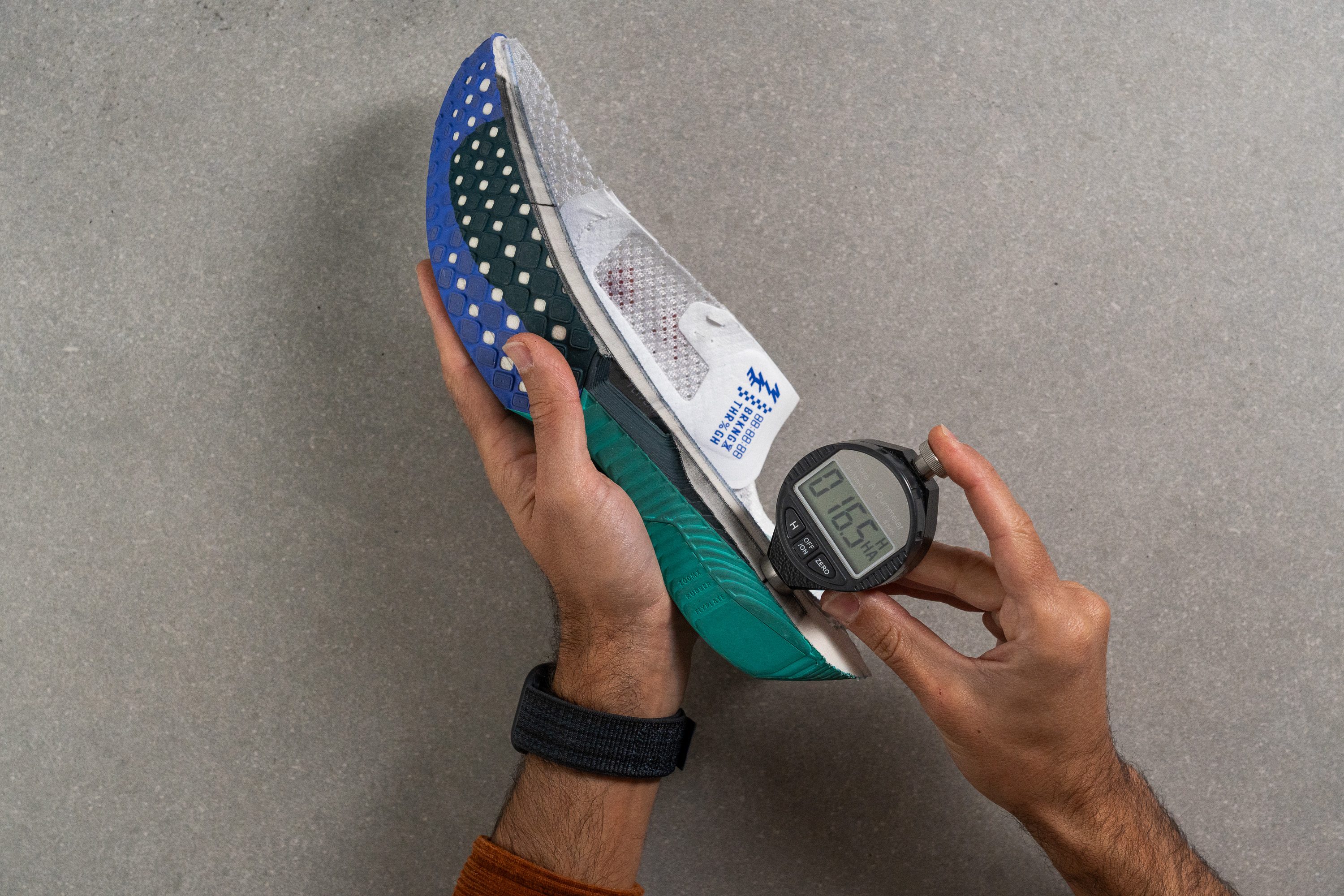
| Vaporfly 3 | 16.8 HA |
| Average | 20.9 HA |
Midsole softness in cold
To gauge the Vaporfly 3's performance in extremely cold conditions, we placed it in the freezer for 20 minutes and then retested it. Post-nap, it registered at 21.8 HA.
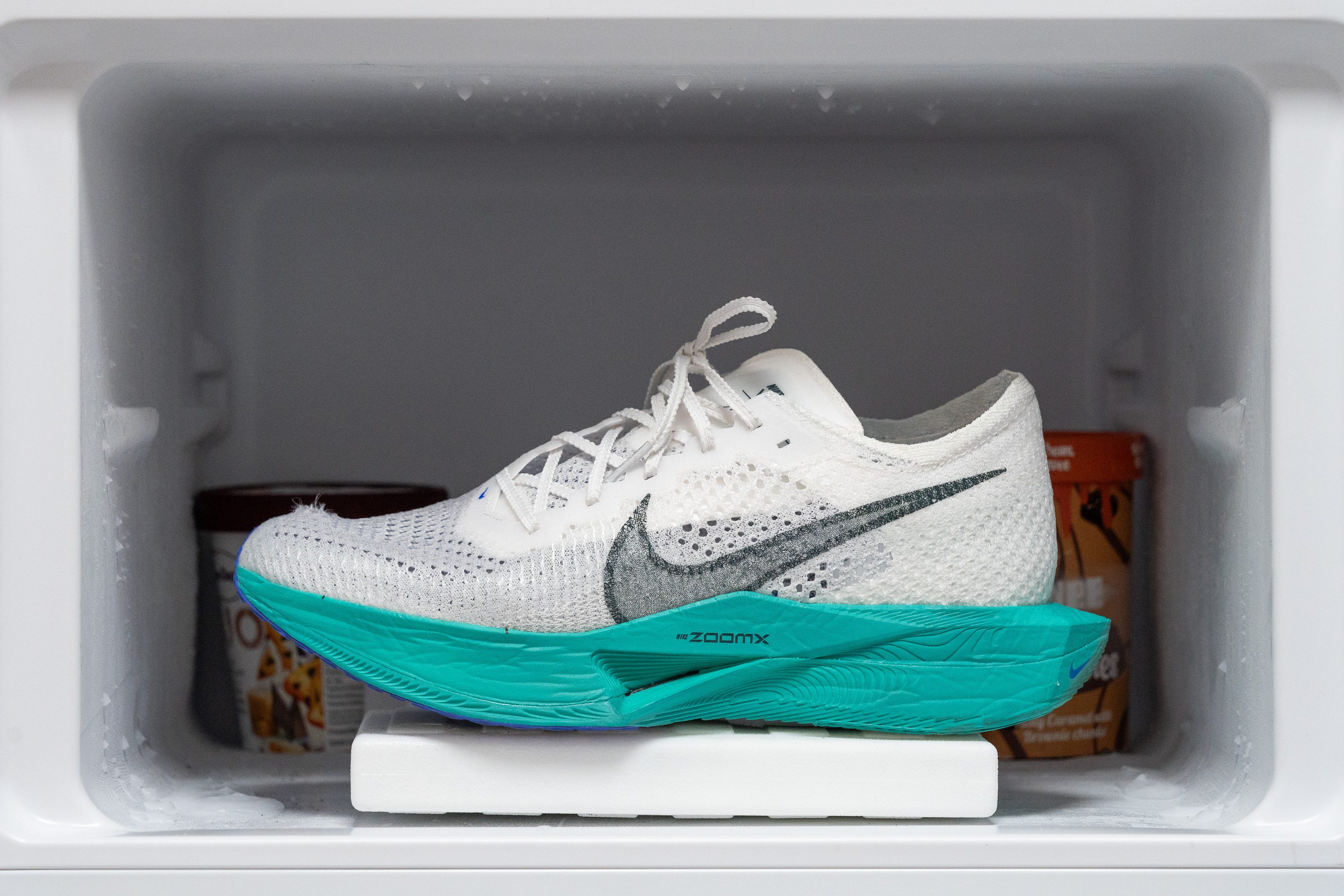
| Vaporfly 3 | 21.8 HA |
| Average | 25.8 HA |
Midsole softness in cold (%)
This shows a 29.5% difference, somewhat high for a Pebax blend, typically known for being below average in such variations.
Anyway, this shoe isn't the ideal choice for super-cold temperatures due to its large holes in the upper.
| Vaporfly 3 | 30% |
| Average | 25% |
Insole thickness
With a mere 3.3-mm thickness, the insole is everything we anticipate from a shoe built for speed—remarkably light in both cushioning and weight.
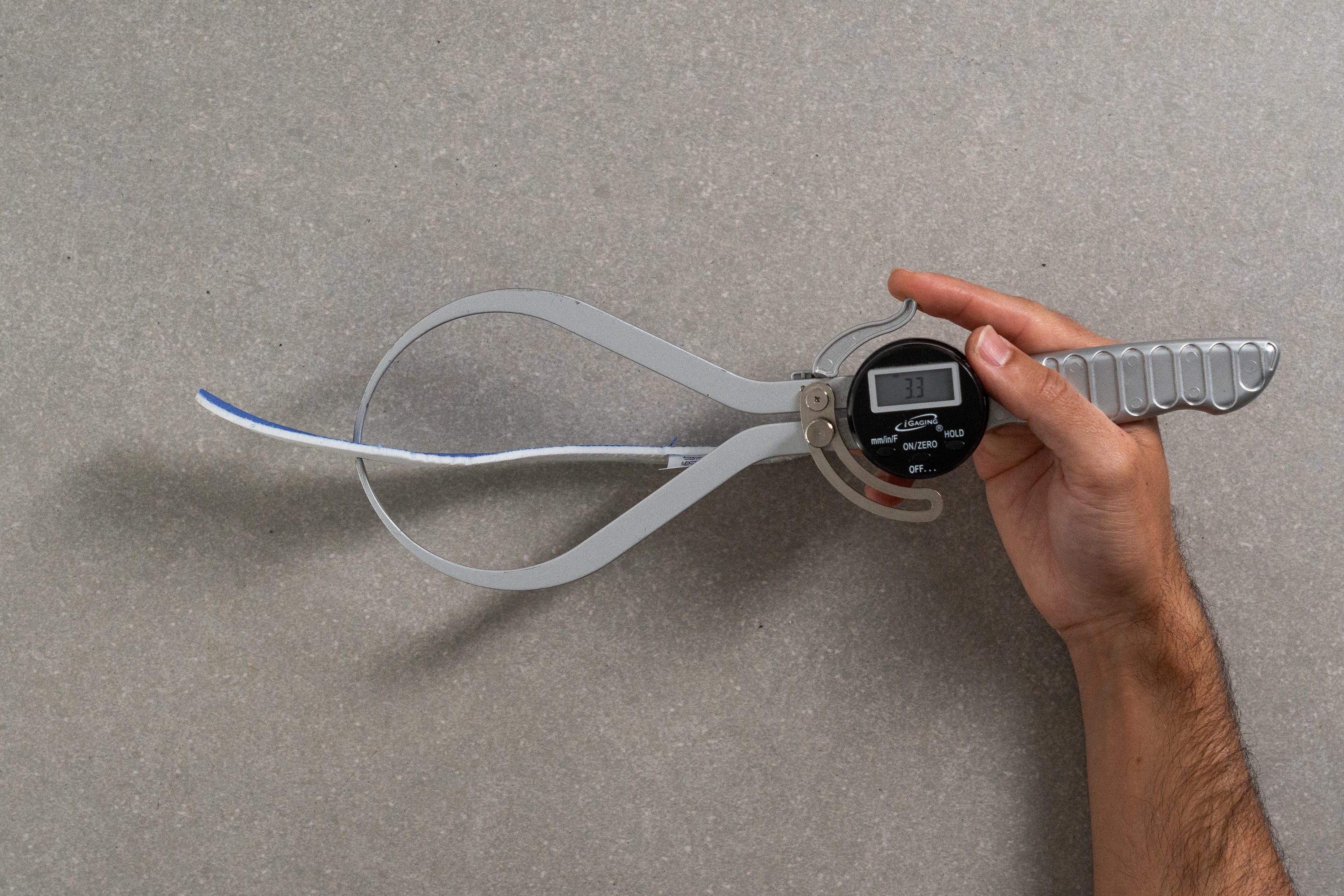
| Vaporfly 3 | 3.3 mm |
| Average | 4.5 mm |
Plate
The Vaporfly truly changed the game with its unique spoon-shaped carbon-fibre plate, known as the FlyPlate. This curvature in the forefoot is crucial for the Vaporfly, as it helps runners achieve a quicker leg turnover by encouraging a higher cadence over longer stride lengths.
One of the reasons the Vaporfly is so kind to our muscles is the design of the plate. The generous amount of ZoomX over the plate, in the forefoot area, also plays a big part in relieving muscle stress, so we think the Vaporfly 3 is an excellent pick for runners who often face posterior chain issues, particularly in the final miles of a marathon.
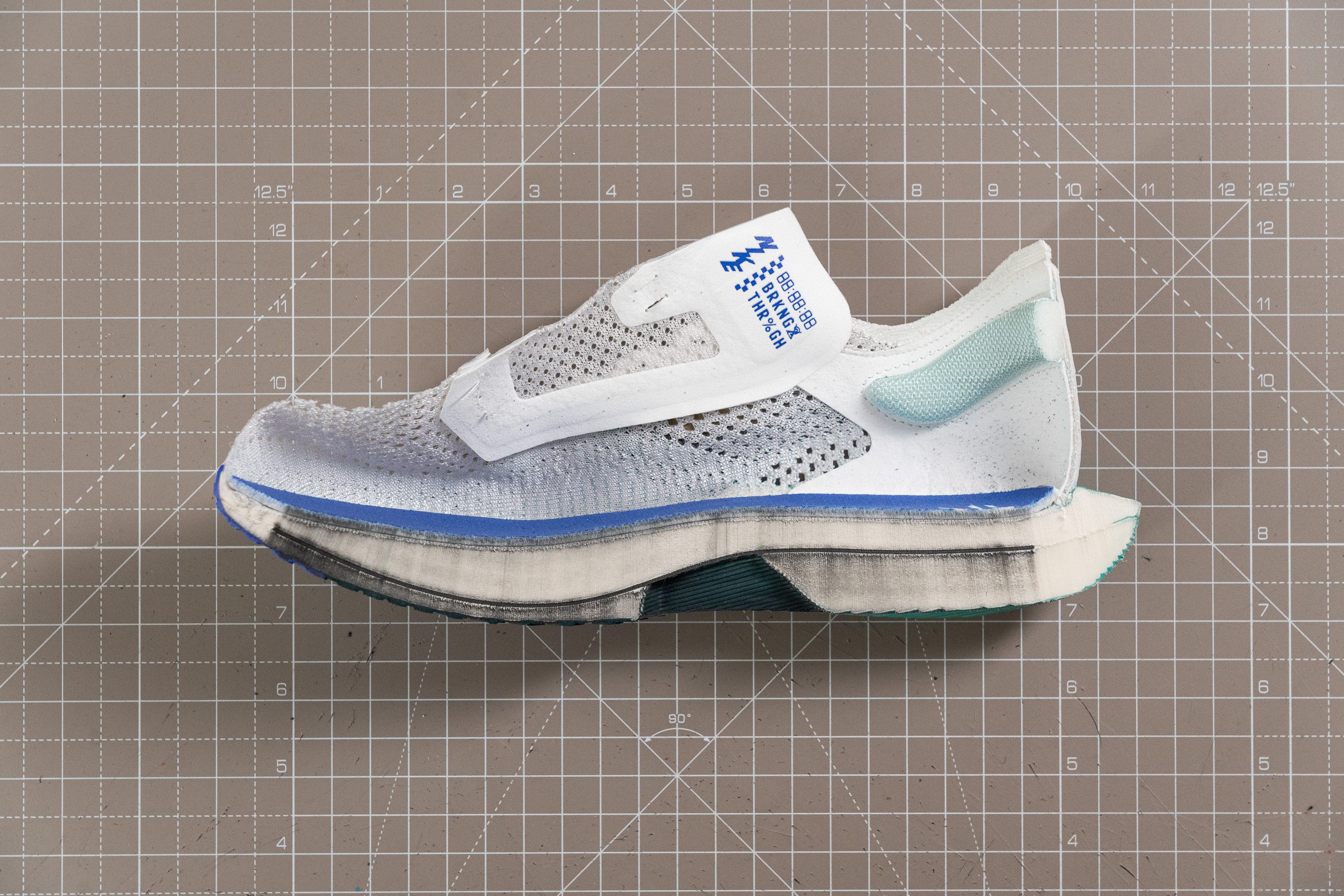
Size and fit
Size
Nike Vaporfly 3 is true to size (329 votes).
Toebox width - widest part
Marathon shoes often come with a narrower toebox, but the Vaporfly stands out with a slightly roomier design. In our experience, its Flyknit upper stretches slightly, creating more room than its shape of the shoe initially suggests.
Although it’s not extremely roomy by any means, the upper’s highly-flexible material offers some extra space, accommodating more comfortably than anticipated. In fact, we measured 94.3 mm in the gel mould we created of the toebox, a result that reflects the stretchiness of the upper.
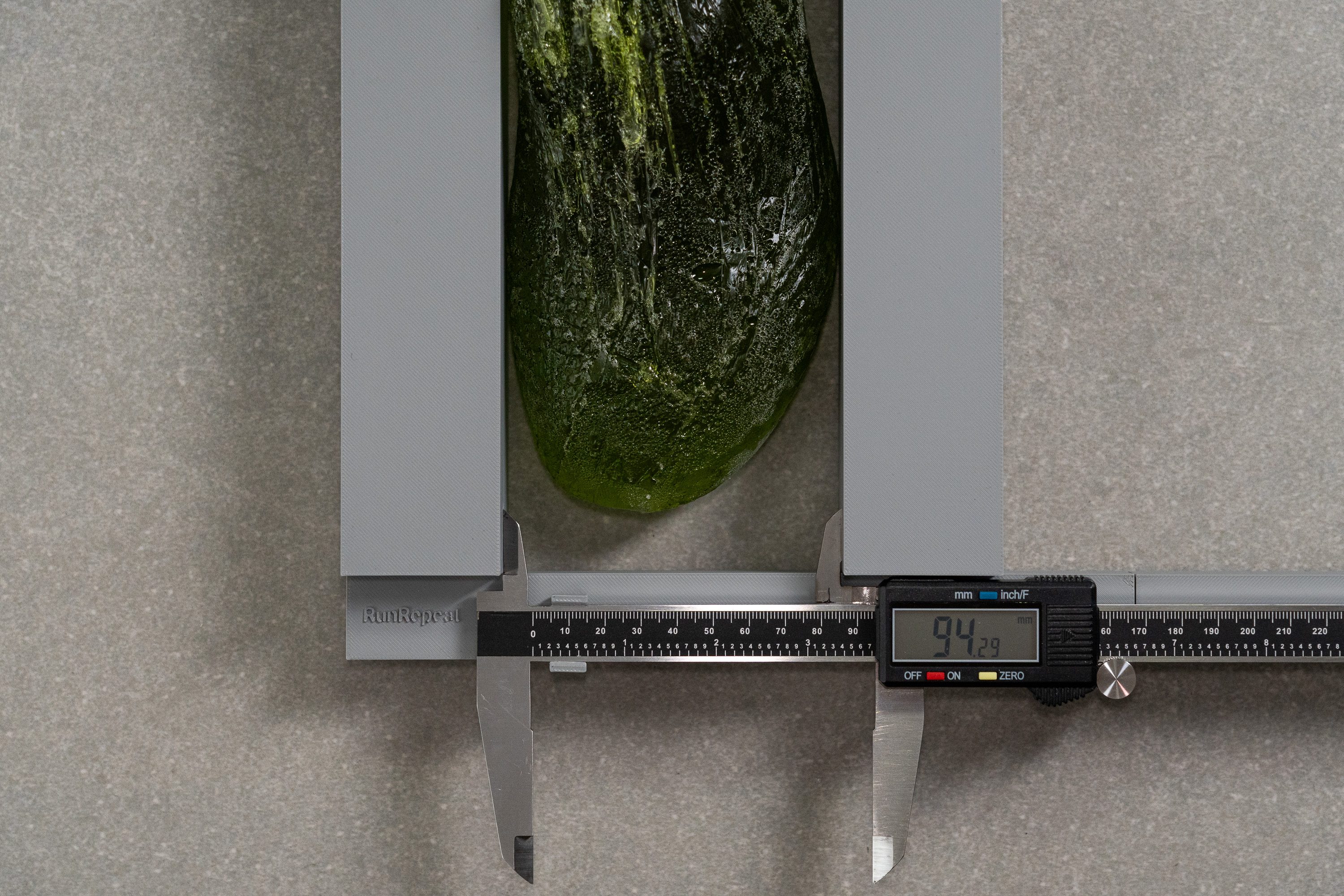
| Vaporfly 3 | 94.3 mm |
| Average | 95.4 mm |
Toebox width - big toe
The toe area is wider than most supershoes at 73.1 mm, potentially making this a good fit for those with Roman or square foot shapes. It’s also an improvement over the v1 and v2 editions of the Vaporfly, which by the way, no longer features "Next%" in the name.
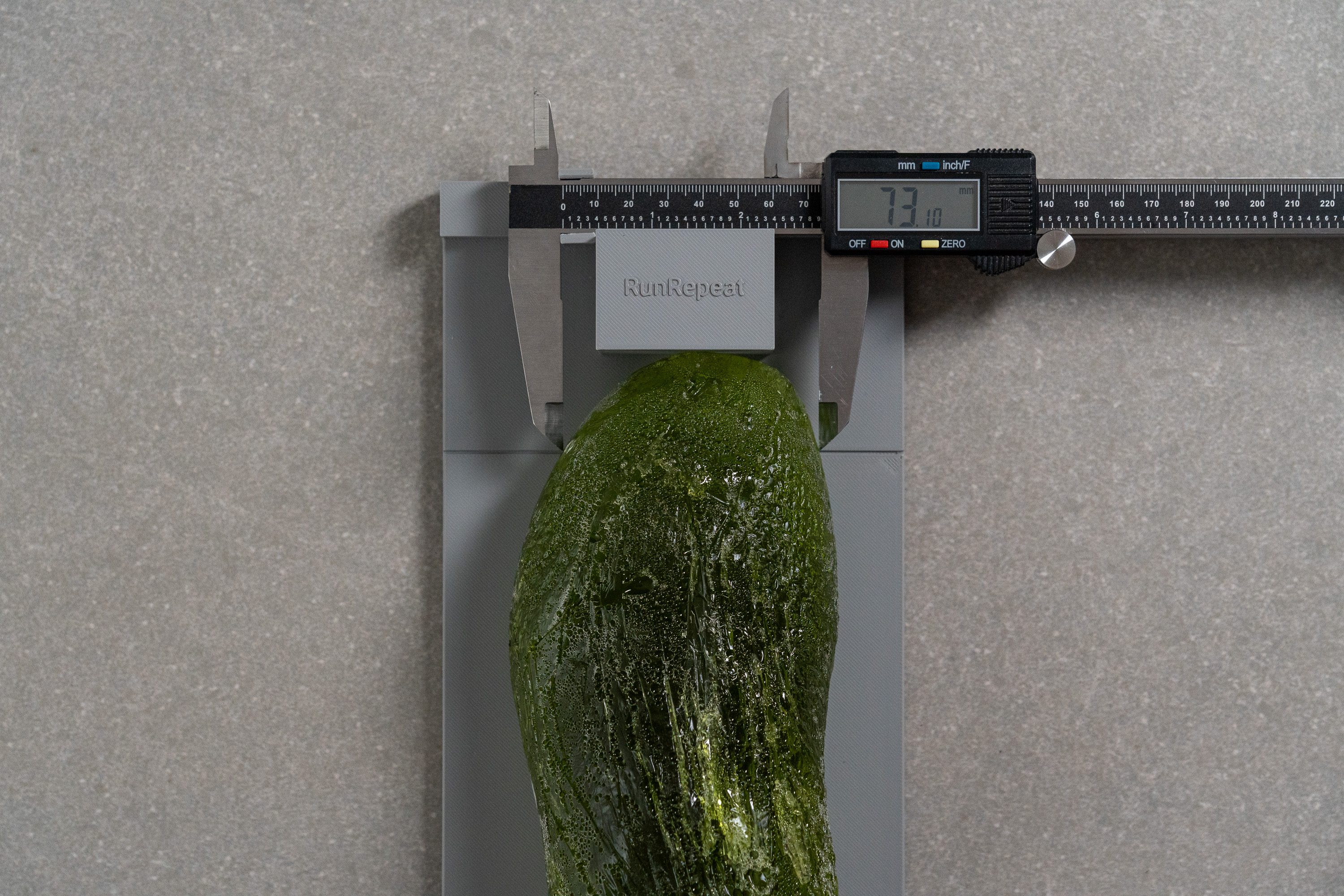
| Vaporfly 3 | 73.1 mm |
| Average | 73.6 mm |
Toebox height
Our gel mould revealed that the vertical height measures 32.5 mm—a substantial measurement. This result occurs because the knit-based upper allowed our gel to expand the toebox by a few extra millimetres.
This measurement fully reflects the maximum vertical space inside the shoe, which is consistent with the other two measurements we conducted regarding width. This is important, as our methodology highlights not only the interior space but also the knit's ability to expand and accommodate higher-volume feet.
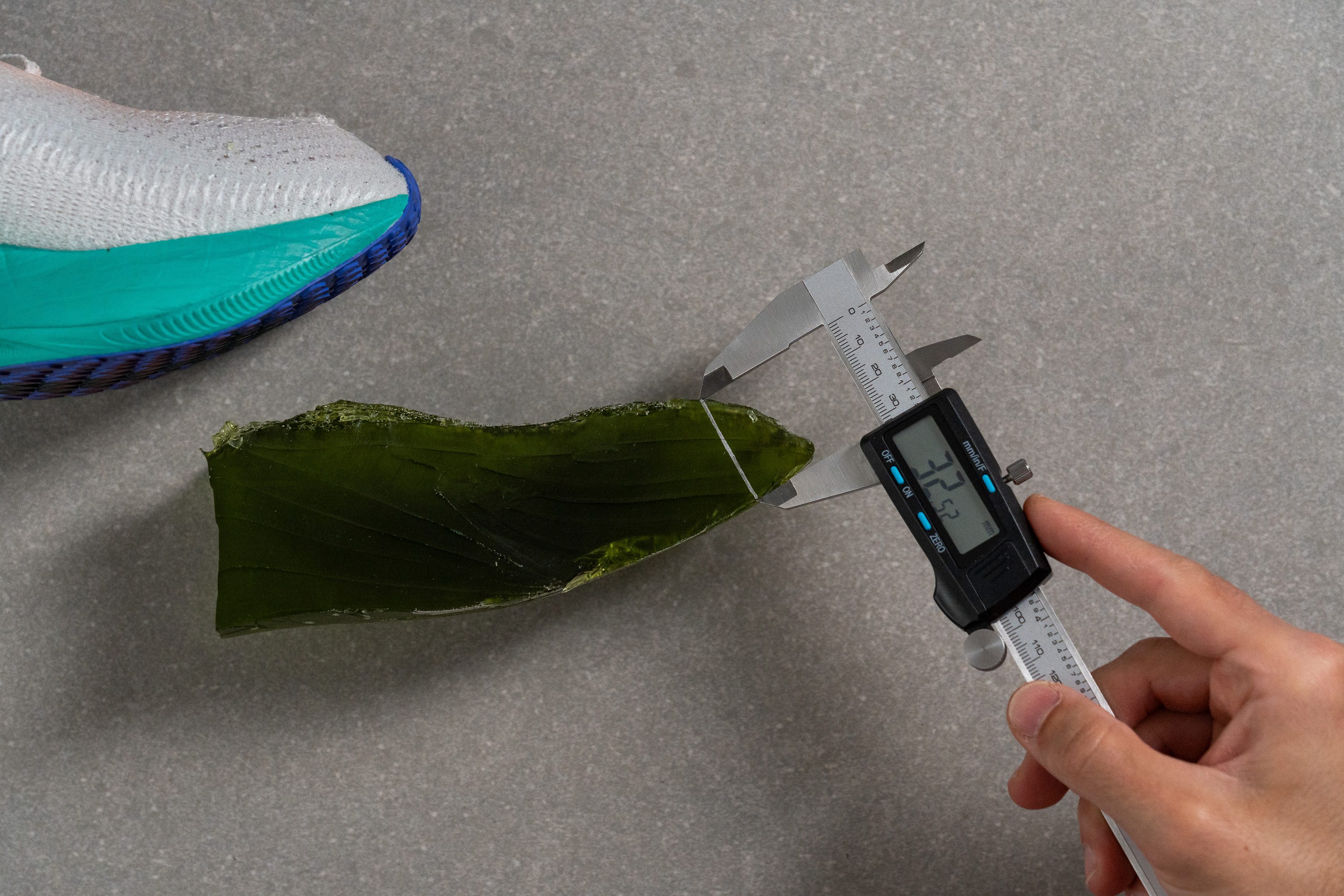
| Vaporfly 3 | 32.5 mm |
| Average | 27.2 mm |
Stability
Lateral stability test
One common reaction from anyone trying a Vaporfly for the first time often goes like, "Wow, this is so unstable!" This sentiment still exists with the V3, but to a lesser degree.
It's a bit more stable now, thanks to its new geometry and shape.
Torsional rigidity
Our manual evaluation of torsional rigidity resulted in a 4/5 rating, a bit unexpected for a carbon-plated shoe that usually scores higher. This suggests they've addressed concerns about the shoe being overly aggressive.
However, those—especially 5K/10K runners—who love the snappy, quick-release sensation of an ultra-rigid shoe might find this a bit disappointing.
| Vaporfly 3 | 4 |
| Average | 3.4 |
Heel counter stiffness
The heel counter is somewhat stiff, making it one of the few shoes in its category to offer a notable degree of rigidity in this area. In fact, in our advanced guide on heel counters, we explained why racing shoes typically skimp on them.
And this also explains the boost in stability we mentioned earlier, doesn't it?
| Vaporfly 3 | 3 |
| Average | 2.9 |
Midsole width - forefoot
The Vaporfly 3 is Nike's original supershoe, synonymous with weight reduction at every angle.
Going through sharp corners remains tricky with the Vaporfly 3.
Due to this, combined with Nike's long-standing trend of crafting narrow shoes—particularly in the midfoot—the 107.6-mm width in the forefoot is typical for a Vaporfly. And its narrow build makes it less suitable for those with wide feet.
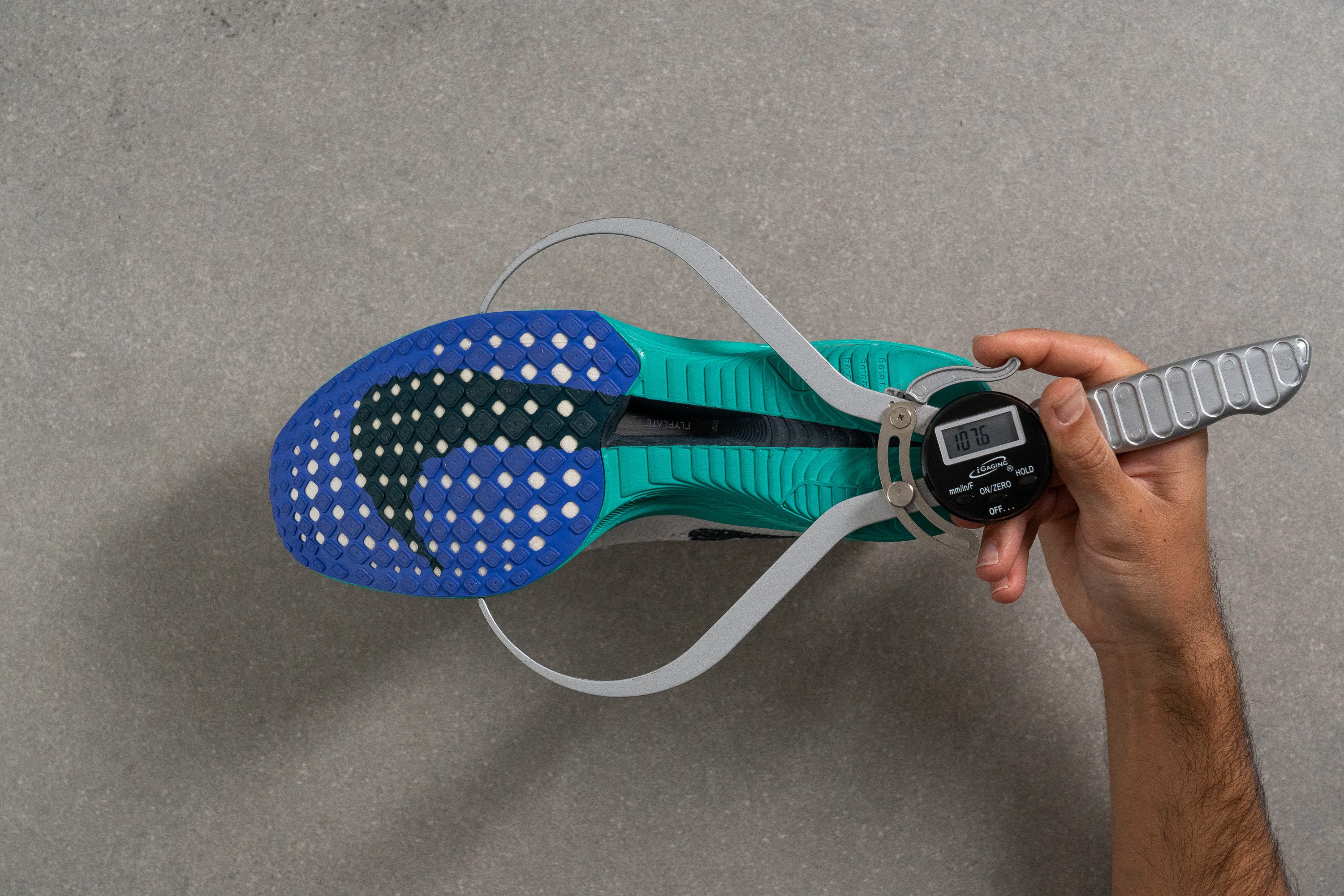
| Vaporfly 3 | 107.6 mm |
| Average | 114.2 mm |
Midsole width - heel
However, it's in the heel that the shoe really reveals its extreme narrowness. Measuring just 76.6 mm, heel strikers with even slight stability concerns should avoid this model and opt for a wider option, like the Hoka Rocket X 2.
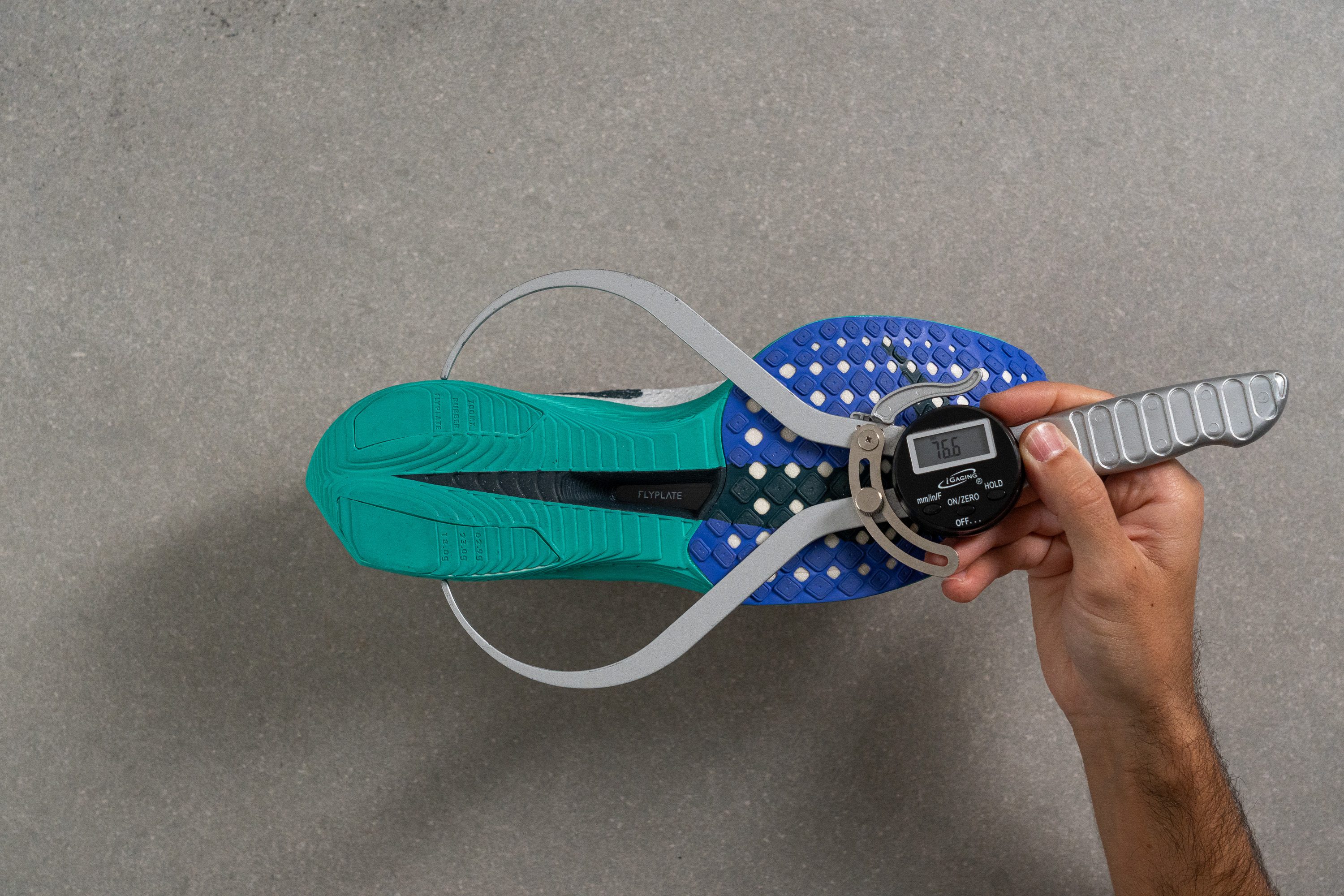
| Vaporfly 3 | 76.6 mm |
| Average | 90.7 mm |
Flexibility / Stiffness
Featuring a carbon-fibre plate embedded in the midsole, this design naturally results in high stiffness, but it’s more flexible than most other supershoes.
In our 30-degree bend test, it required only 18.4N of force, which is a bit more than the average shoe and makes it perfect for those wanting a more forgiving ride.
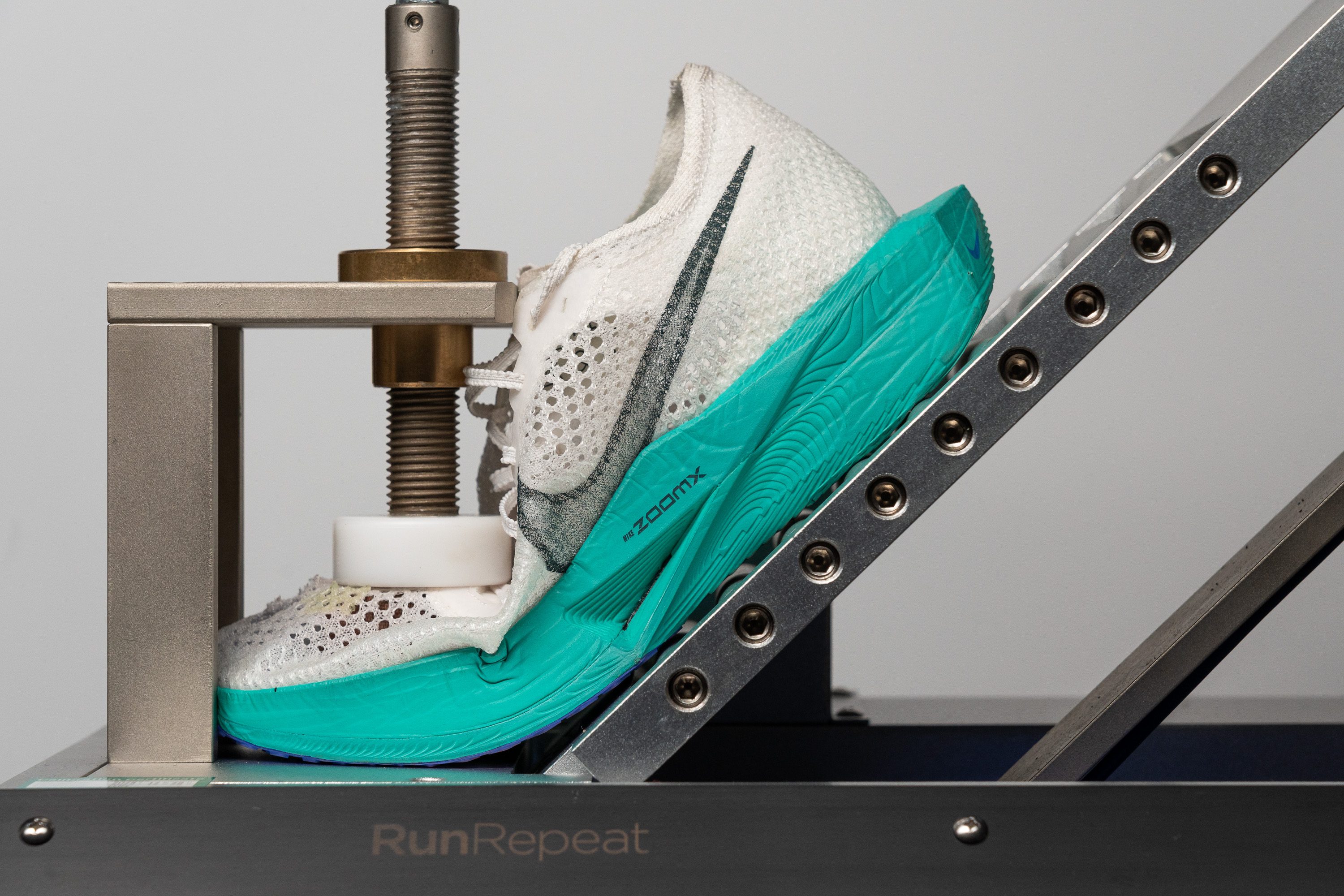
| Vaporfly 3 | 18.4N |
| Average | 15.8N |
Stiffness in cold
Following the same protocol as our midsole softness test—20 minutes followed by another measurement—we found a slight increase in stiffness. This time, it required 59.7N of force, a bit more than before.
| Vaporfly 3 | 59.7N |
| Average | 36.2N |
Stiffness in cold (%)
This represents a 6.5% increase, exactly the kind of outstanding performance we expect from a Pebax-based midsole—an achievement we hadn't seen before.
| Vaporfly 3 | 7% |
| Average | 32% |
Weight
One of the most impressive aspects of the Vaporfly 3 is its extraordinary lightness. The VF2 was already a featherweight champion at 6.9 oz (196g), so we anticipated the Vaporfly 3 to be in the same ballpark, maybe even slightly heavier.
But Nike surprised us by trimming it down even more to 6.7 oz (190g). It's amazing how it continues to shed weight while still maintaining its cushioning!
| Vaporfly 3 | 6.70 oz (190g) |
| Average | 9.35 oz (265g) |
Breathability
When we first opened the box of the Vaporfly 3, our excitement was through the roof—especially to test its breathability. Having tested hundreds of shoes, none had hyped us with ventilation at first sight like this one.
We were pretty sure the VF3 would nail a perfect 5/5 in breathability, but we had to see it in action with our smoke-pumping machine. The result? An outstanding, super-fast airflow, like nothing we've ever experienced.
Next, we conducted our light test to check if the airflow was limited to the toebox area, as it is with many competition shoes. Luckily, that wasn't the case. Sure, there's an increase in reinforcements around the heel, but the medial part is impressively ventilated.
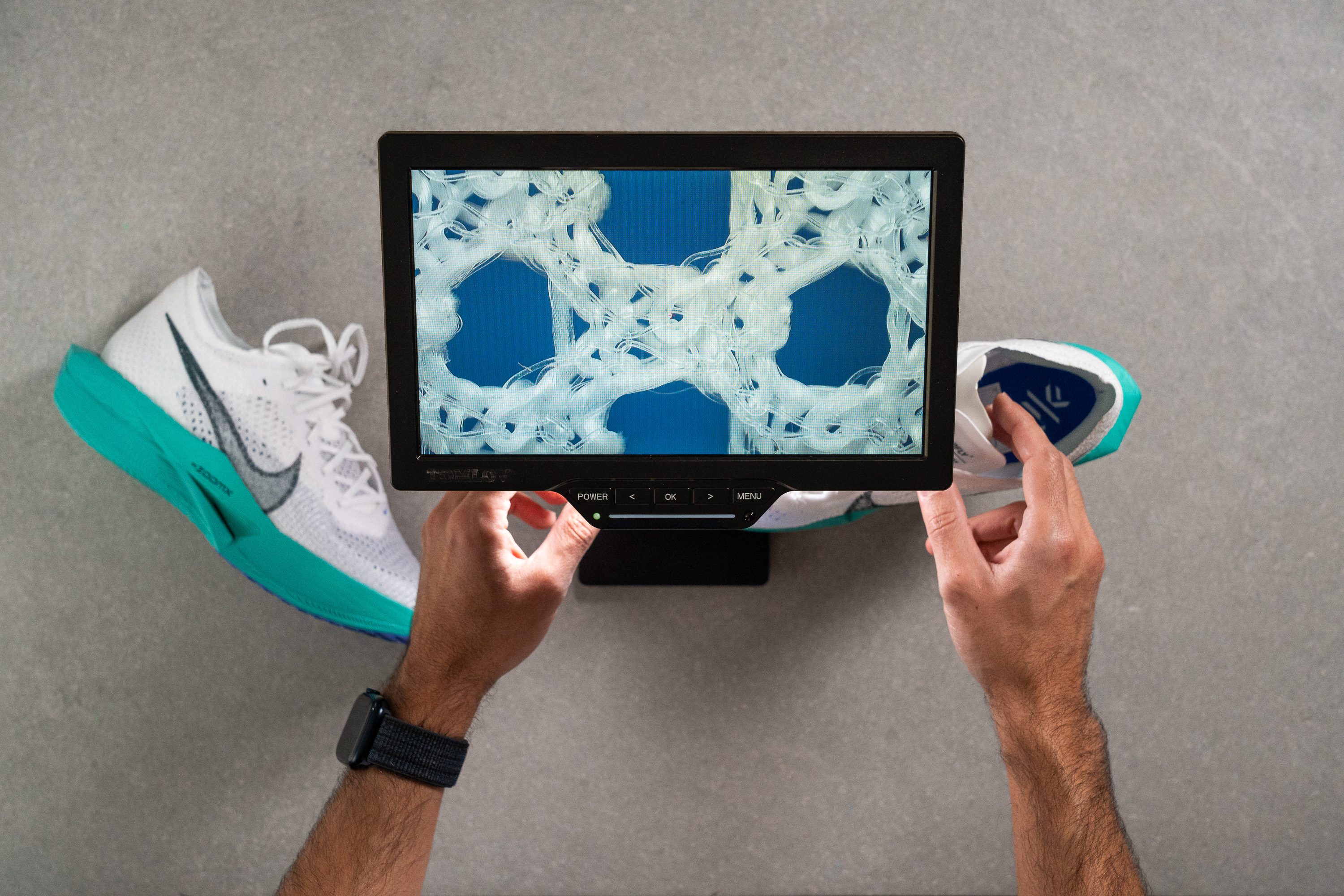
But, the real shocker came under the microscope. Nike has outdone itself in creating a ventilation marvel, a shoe that's a summer runner's fantasy.
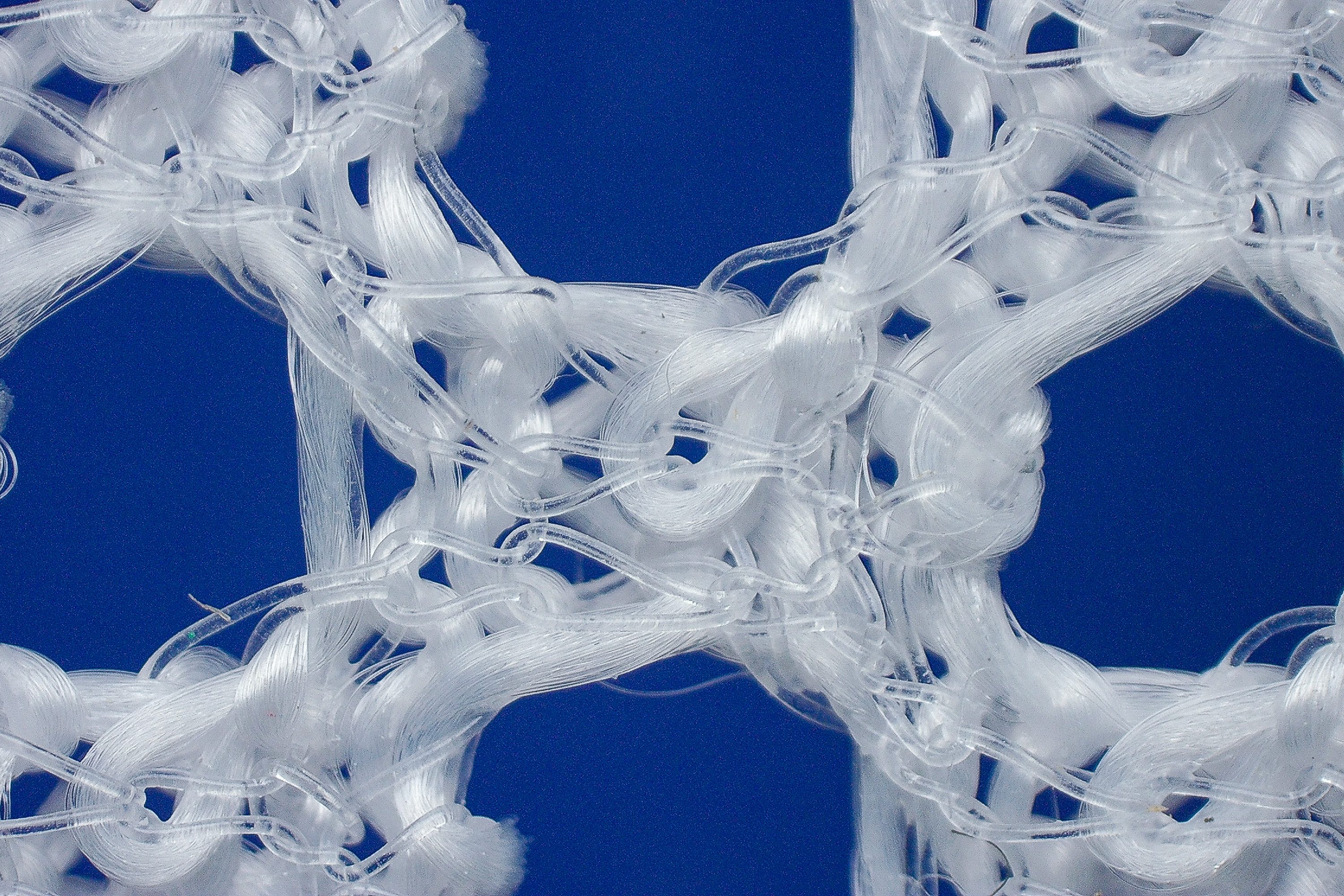
And despite these large gaps, the upper remains sturdy and maintains its structure—a masterpiece that deserves a round of applause for Nike.
| Vaporfly 3 | 5 |
| Average | 3.8 |
Durability
Toebox durability
While we were all eagerly expecting top marks for breathability, we couldn't ignore the looming concern about durability. Unfortunately, our fears were confirmed.
When we put the shoe to the test with our Dremel, it became clear that this exceptional breathability comes with a major downside—a 1/5 durability.
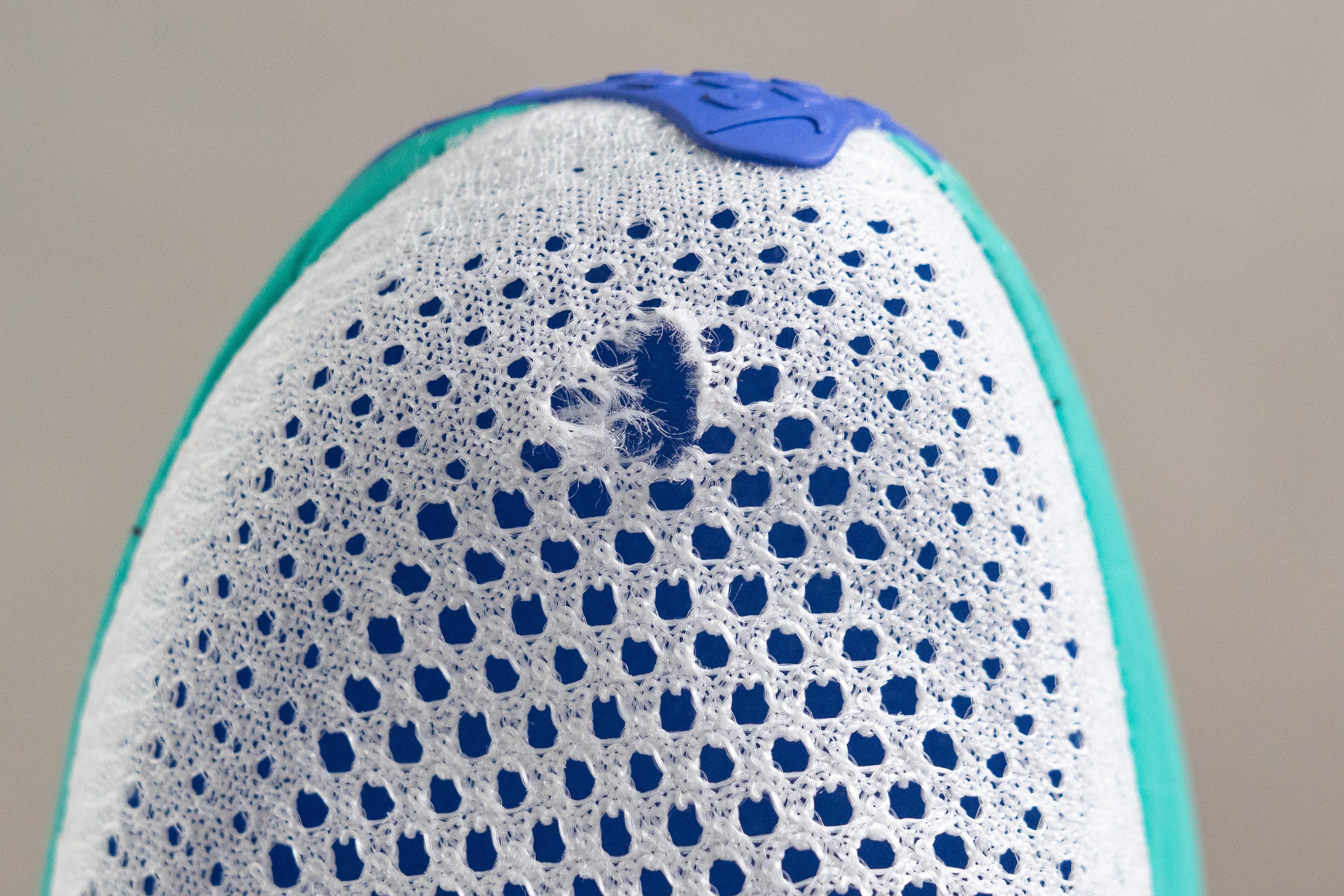
| Vaporfly 3 | 1 |
| Average | 2.6 |
Heel padding durability
Nike has improved the Vaporfly with a padded, durable heel, which is quite impressive, particularly since competition shoes often show quicker wear and tear in this area. Plus, they've managed to pack in a considerable amount of comfort too.
In short, Nike didn’t just score a perfect 5/5 in our Dremel test by cutting back on padding. Instead, they used a robust and effective fabric, striking a fantastic balance between durability and comfort.
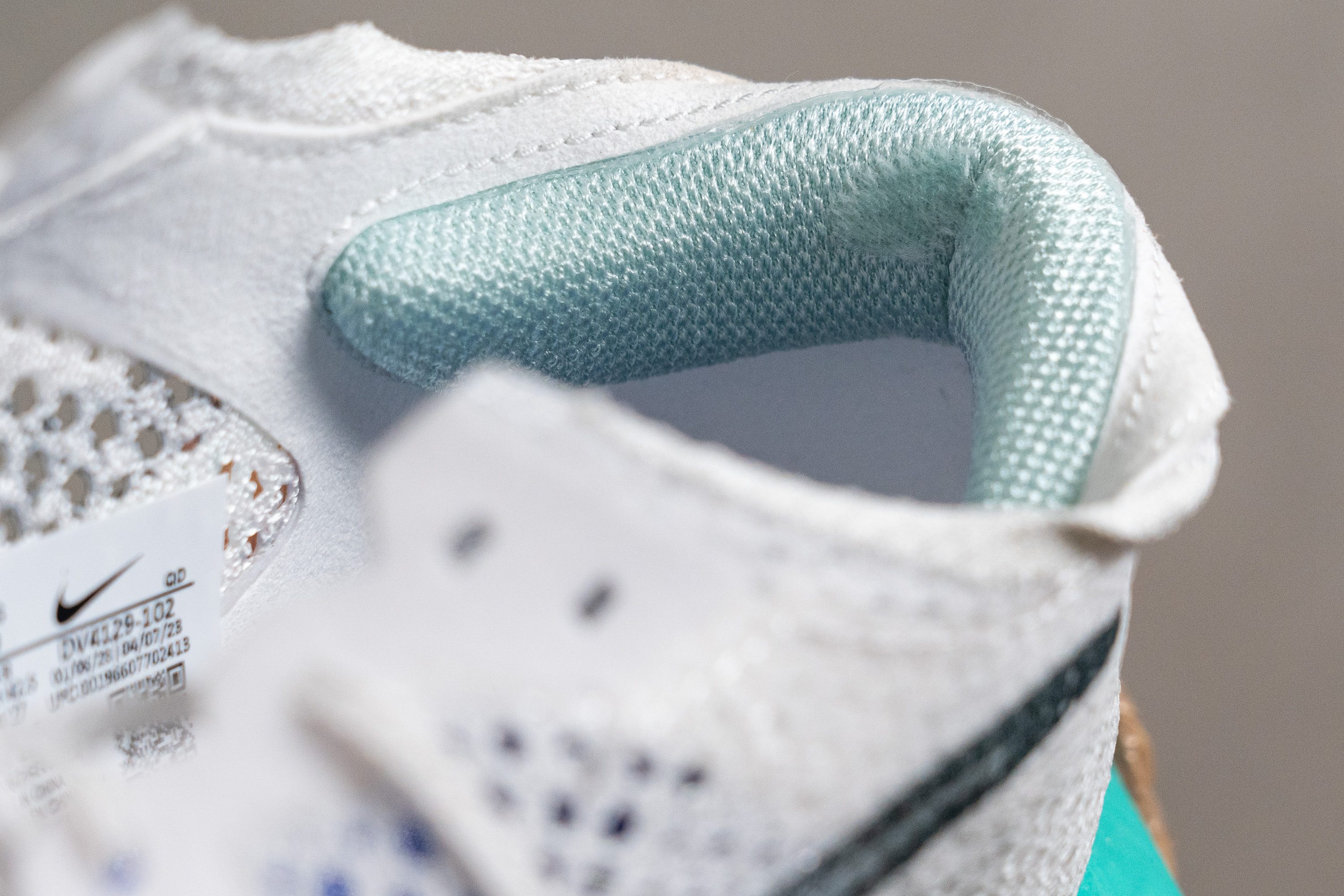
| Vaporfly 3 | 5 |
| Average | 3.3 |
Outsole hardness
The outsole of the Vaporfly 3 features a soft, sticky rubber that we measured at 56.1 HC. This improvement tries to address a major concern from users of the Vaporfly 2: the grip.
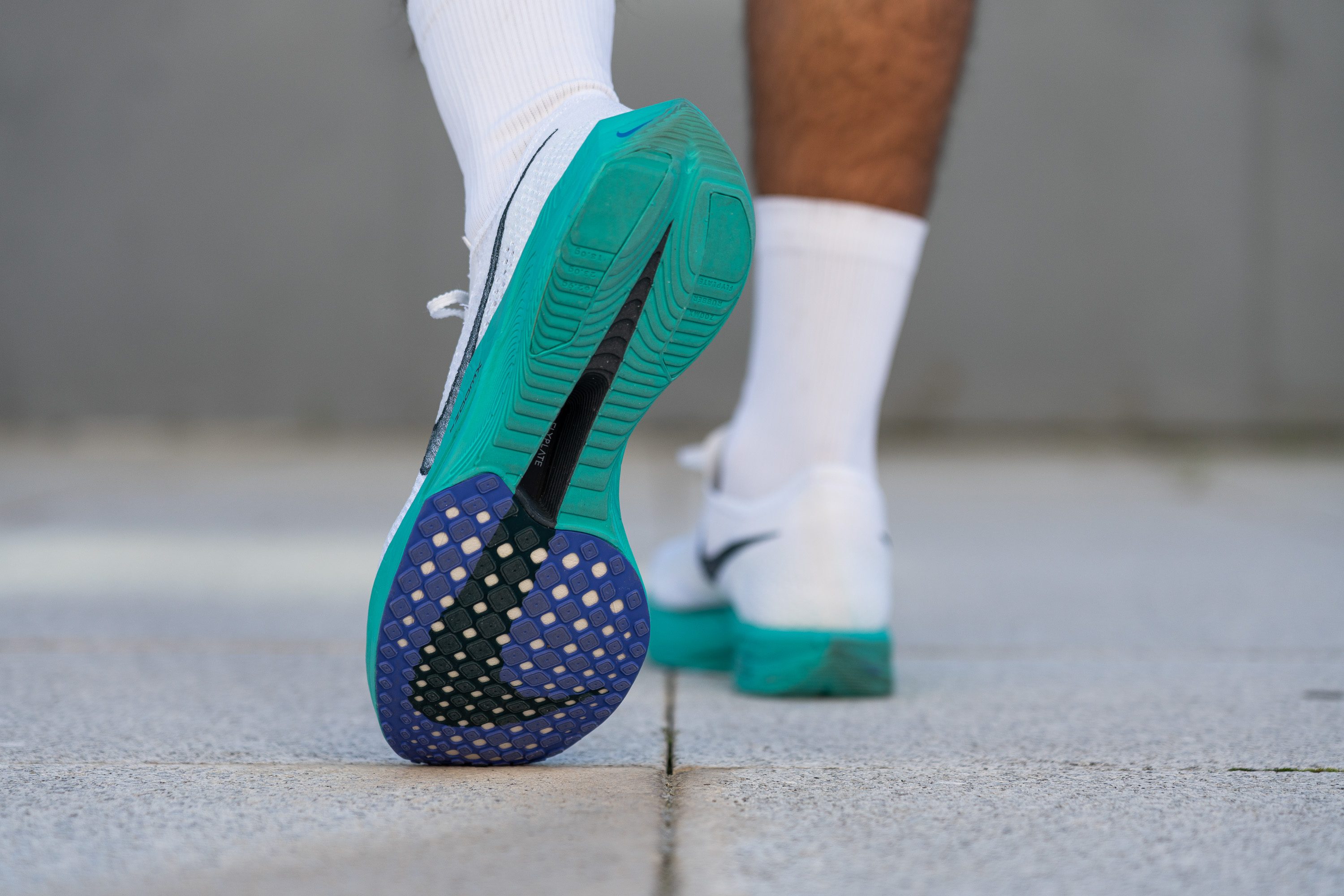
Nike developed a new rubber for better grip compared to the first two models. We can confirm it's more effective, but it still doesn't quite match the level offered by many of its competitors.
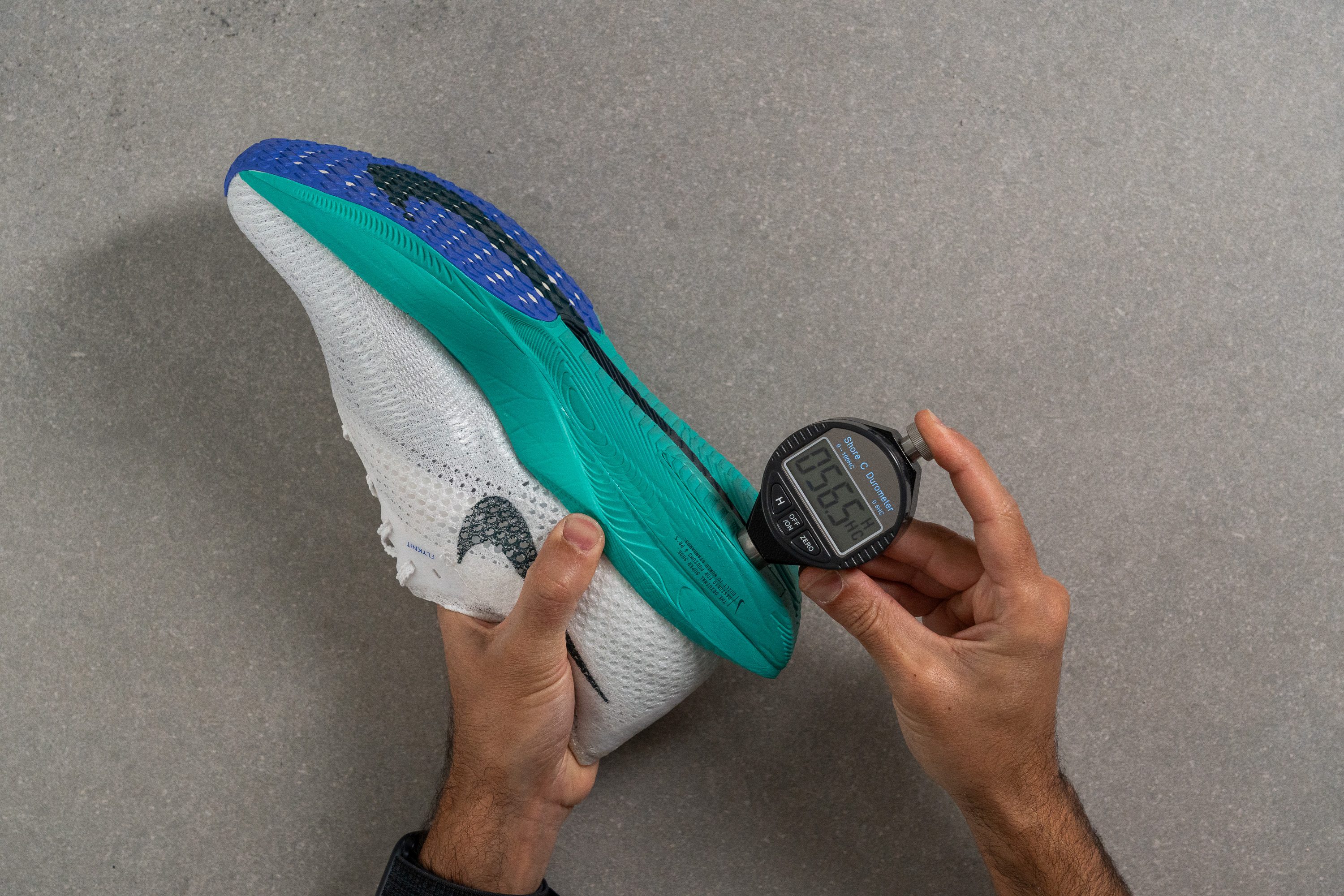
| Vaporfly 3 | 56.1 HC |
| Average | 79.5 HC |
Outsole durability
To shed some light on the outsole's durability, we used the Dremel one final time and were amazed to find that it only made a 0.2-mm indentation in the rubber.
This highlights the rubber's high quality—it's soft yet tough, offering heel strikers hope for lasting durability. However, the forefoot might be a different story—it doesn't have the same pattern and seems more susceptible to wear and tear.
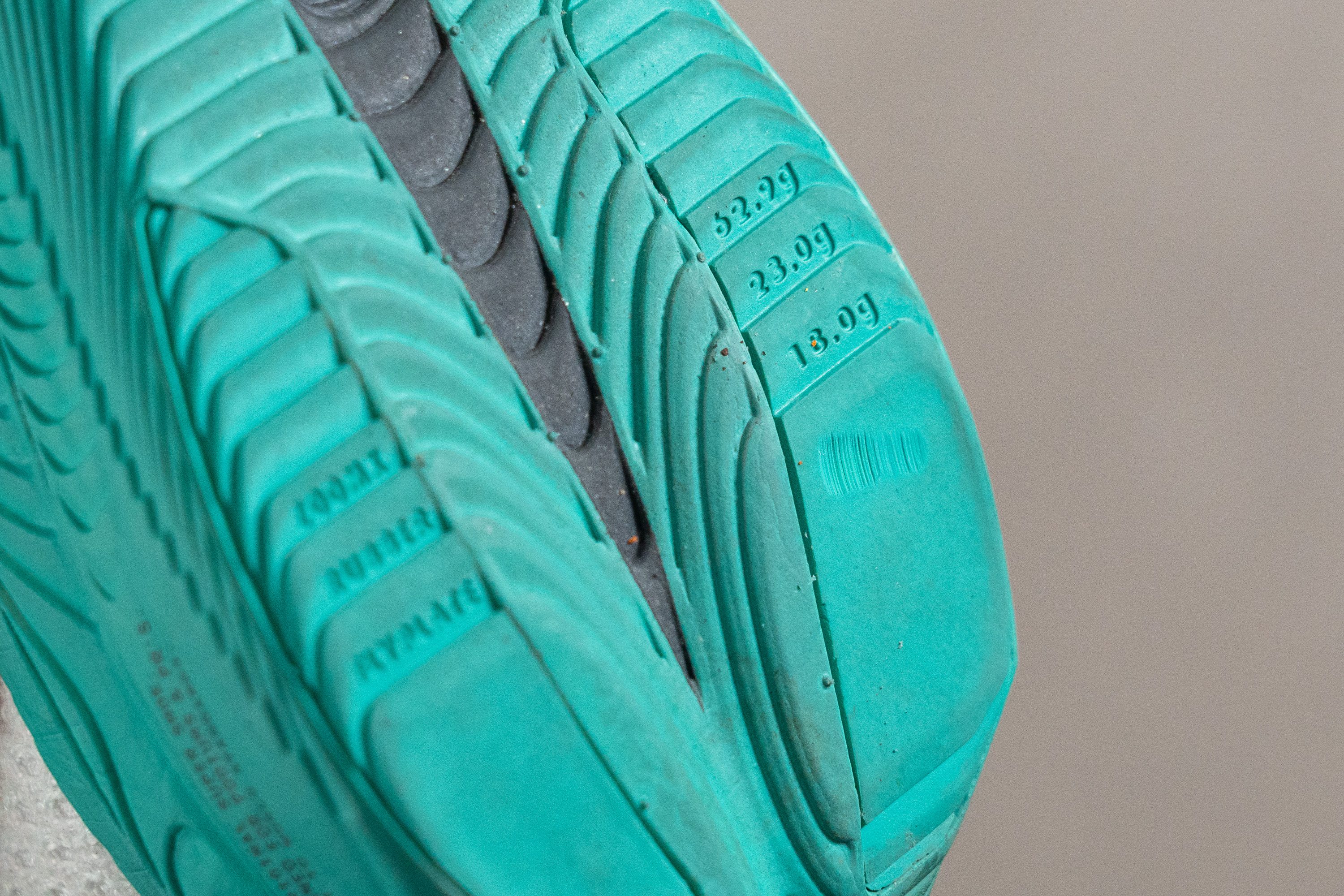
| Vaporfly 3 | 0.2 mm |
| Average | 1.1 mm |
Outsole thickness
Regarding thickness, we anticipated it to be quite thin, as is typical with competition shoes, and Nike delivered exactly that.
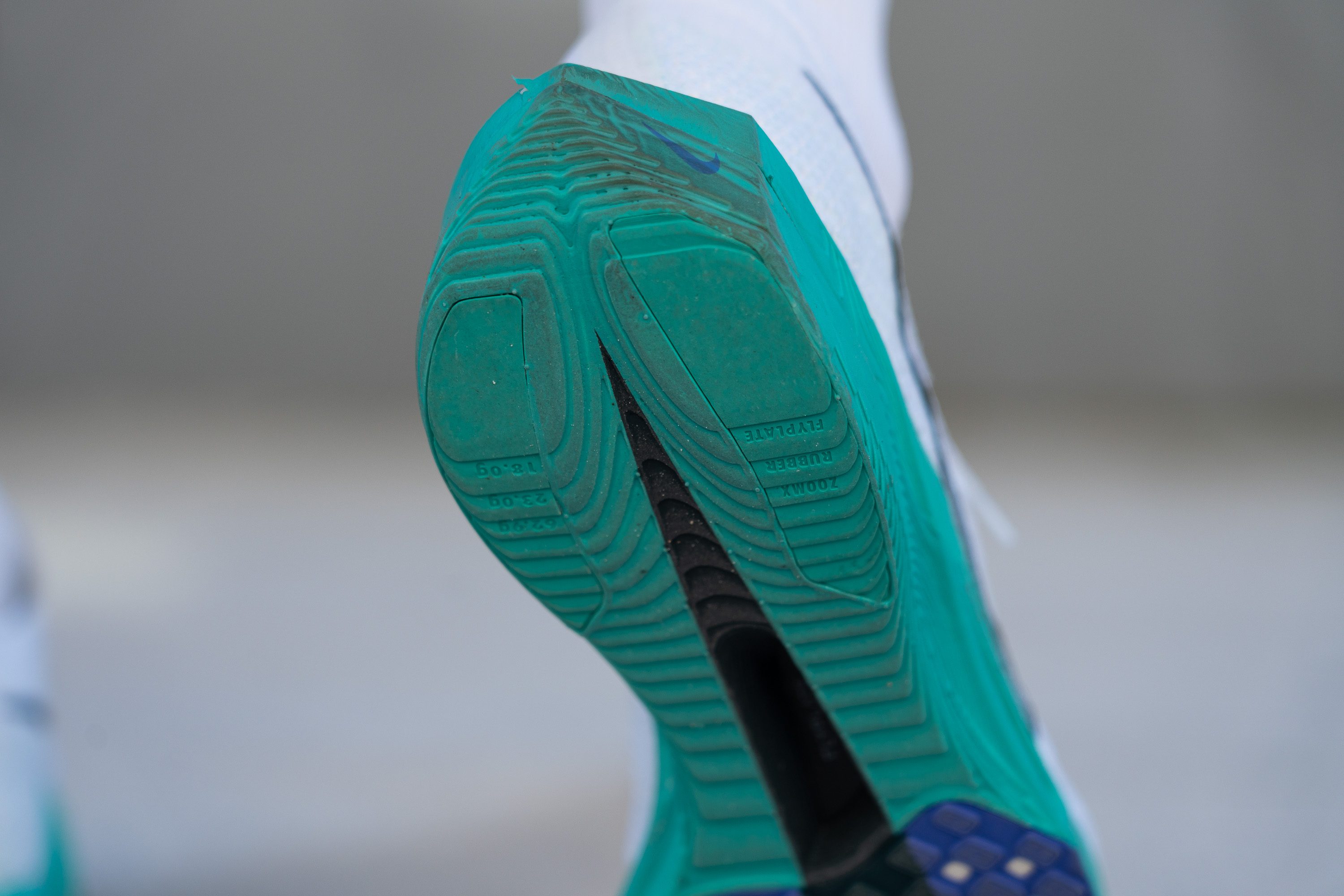
After precise measurements, we found a thickness of just 1.9 mm, clearly designed to save weight. In fact, Nike notes that the outsole weighs only 23.0 grammes.
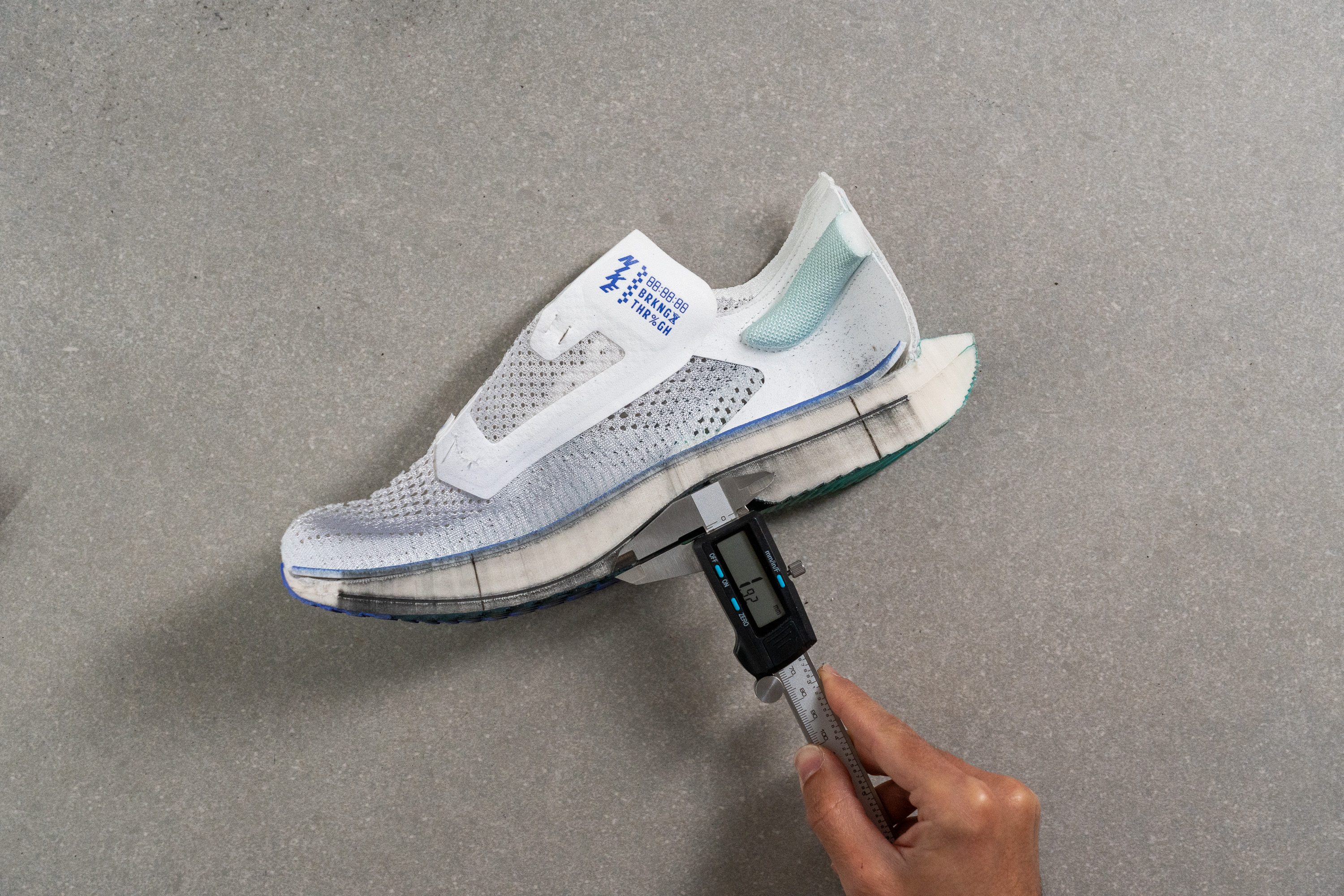
| Vaporfly 3 | 1.9 mm |
| Average | 3.3 mm |
Misc
Reflective elements
The Vaporfly 3 lacks reflective elements, which actually makes sense considering its design is primarily for road races. After all, only a very small percentage of these events take place at night.
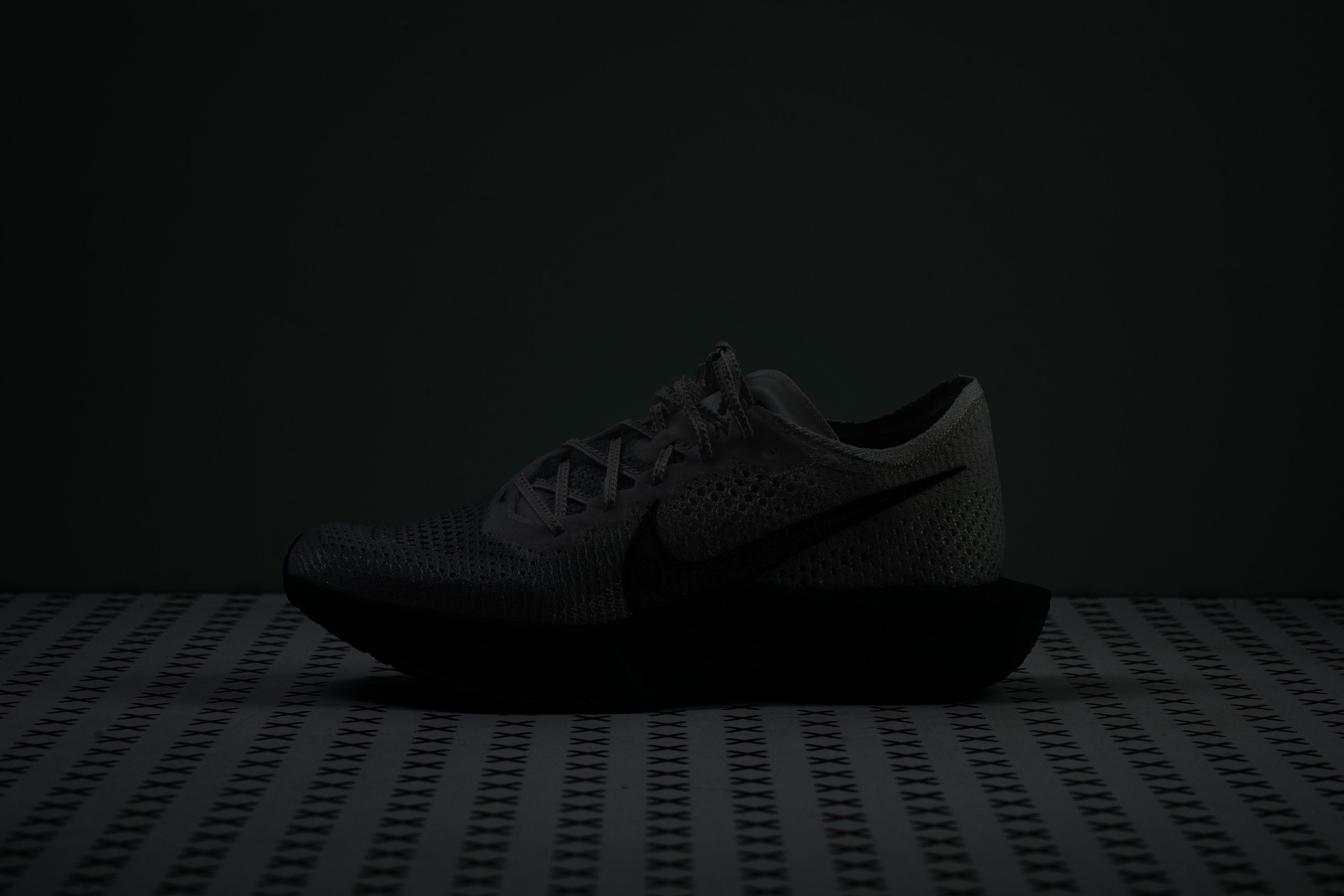
| Vaporfly 3 | No |
Tongue padding
It might be a bizarrely shaped, but is impressively well-padded. For a shoe that weighs less than 7 ounces, having a 2.5-mm padding in the tongue is amazing.
Most racing shoes have tongues that are less than 1 mm thick!
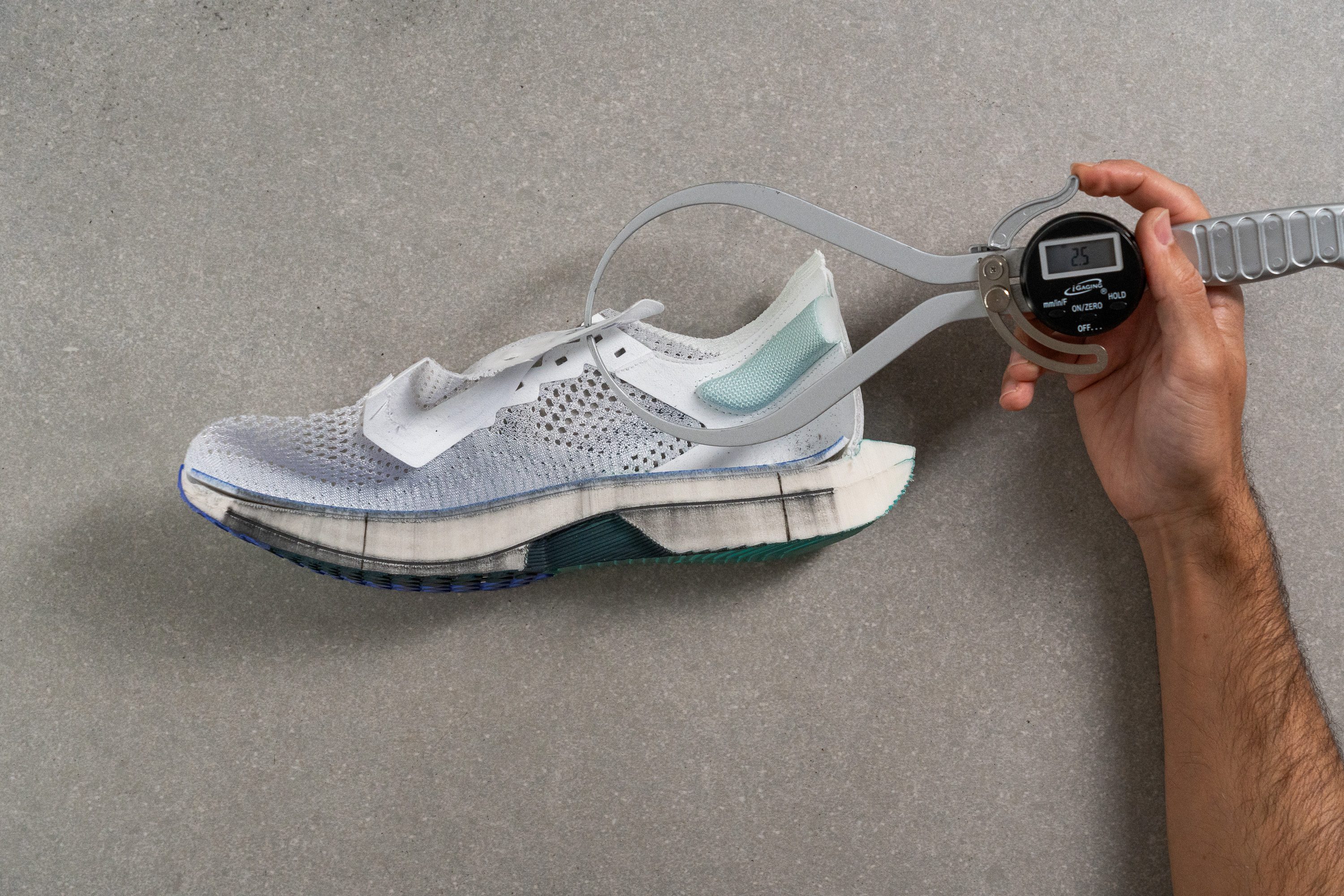
| Vaporfly 3 | 2.5 mm |
| Average | 5.8 mm |
Tongue: gusset type
Priced at a whooping £250, we had hoped for a gusseted tongue to enhance the lockdown. However, it's missing, which isn't surprising given Vaporfly's history.
On another note, the tongue is incredibly large and may be uncomfortable for some. Nike should definitely consider redesigning it for the Vaporfly 4.
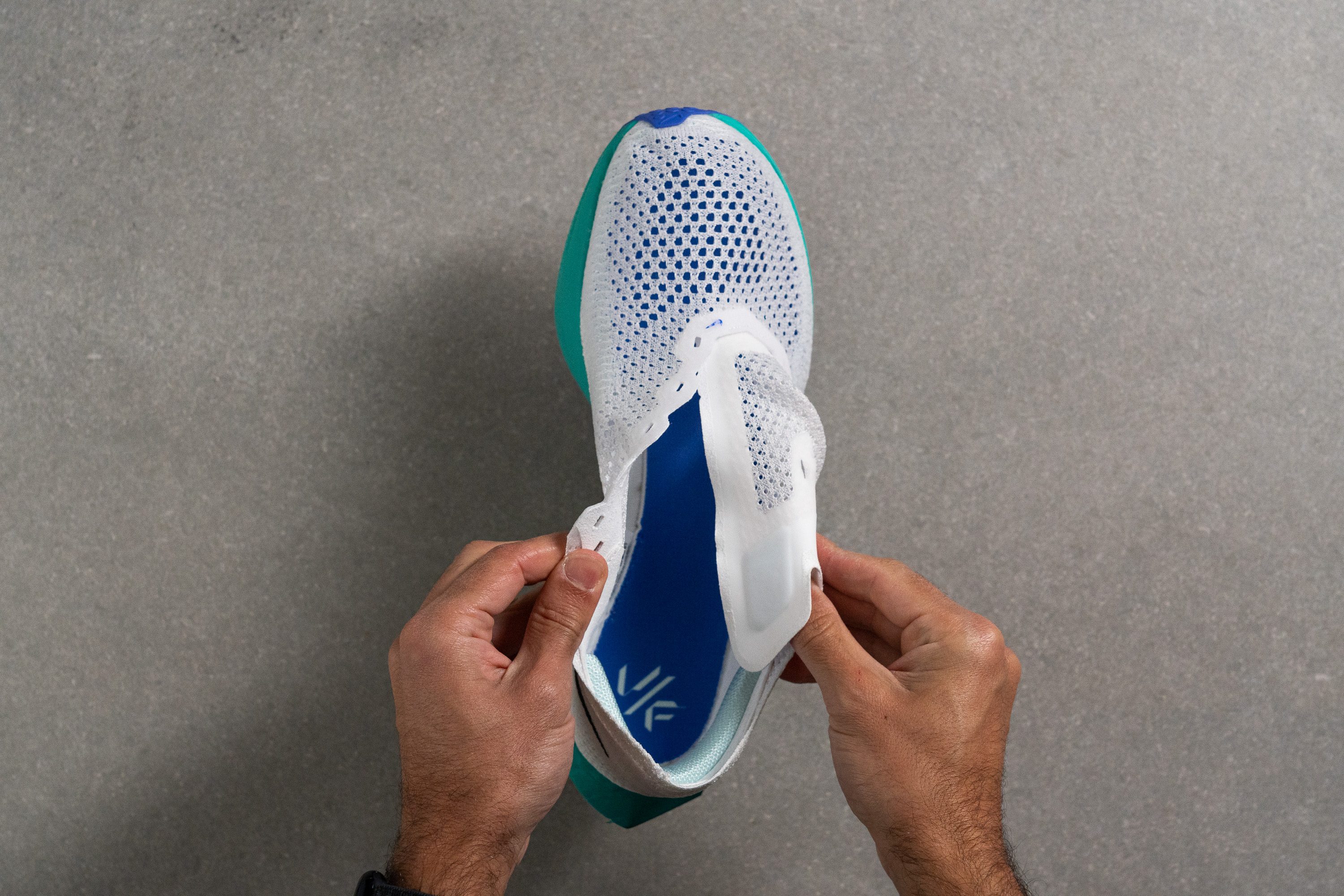
| Vaporfly 3 | None |
Heel tab
Unlike the Alphafly series, the Vaporfly skips the heel tab yet again. This decision aligns with Colin Chapman's philosophy, famously applied in car design, which emphasises the importance of reducing weight for better performance.
Following this mindset, Nike opted to cut down on weight, even if it means a slight compromise in comfort.
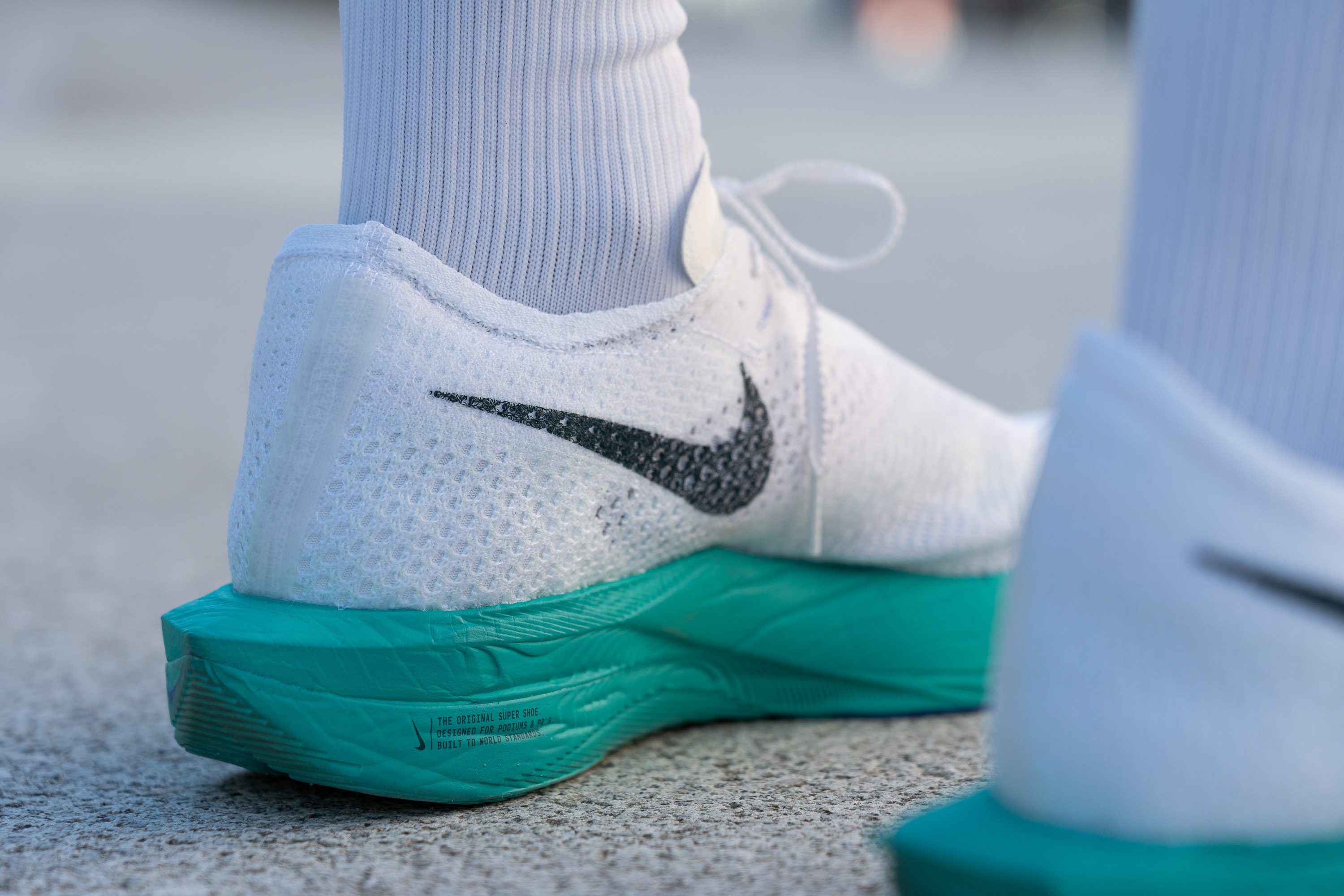
| Vaporfly 3 | None |
Removable insole
Nike continues to glue the insole of the Vaporfly, meaning you can't swap it out for third-party insoles.
While custom orthotics might fit inside, you'd need to have exceptionally small feet and likely opt for a half/full size larger than usual.
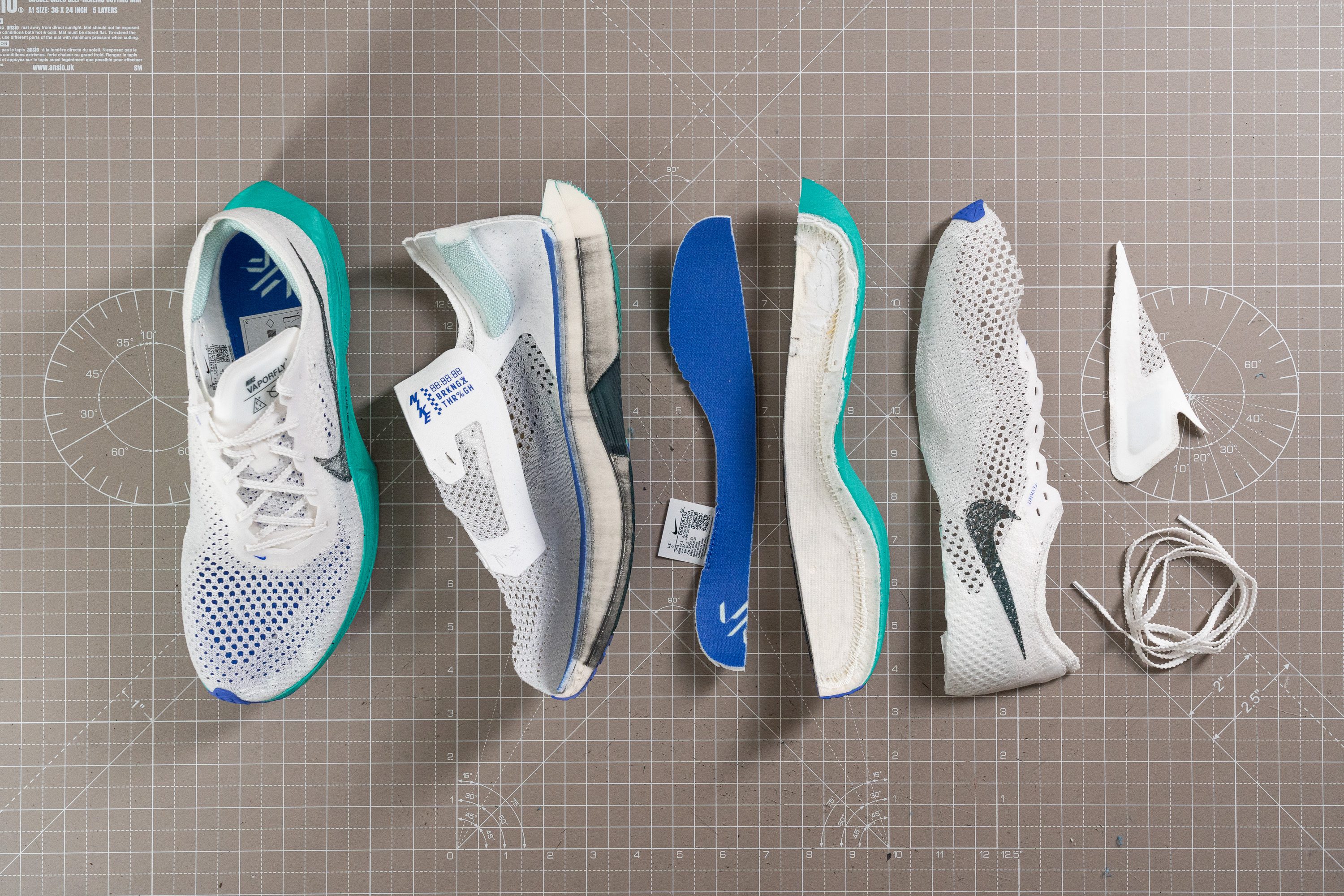
| Vaporfly 3 | No |
 Hiring remote: Content writer / review specialist in
Hiring remote: Content writer / review specialist in 
